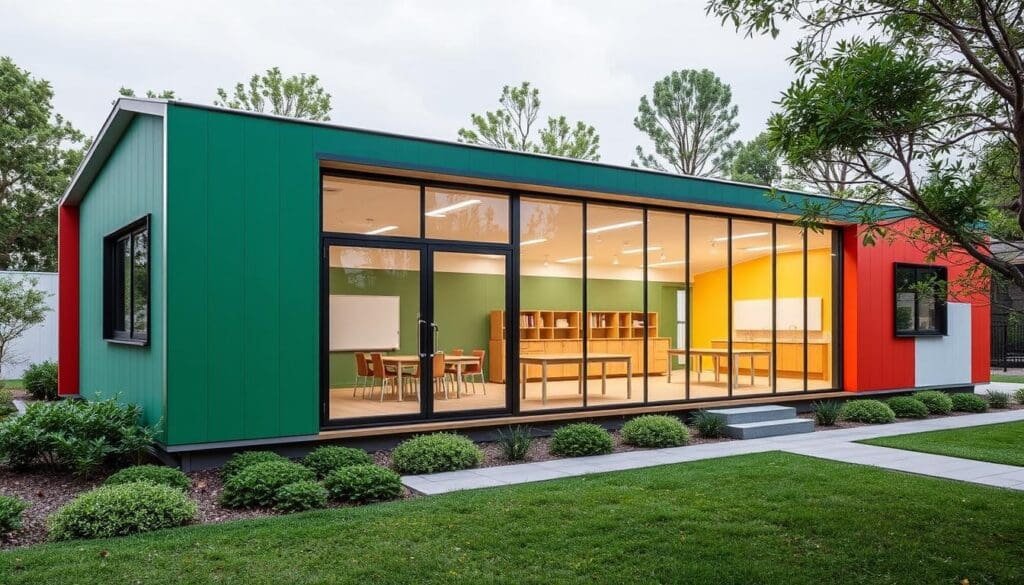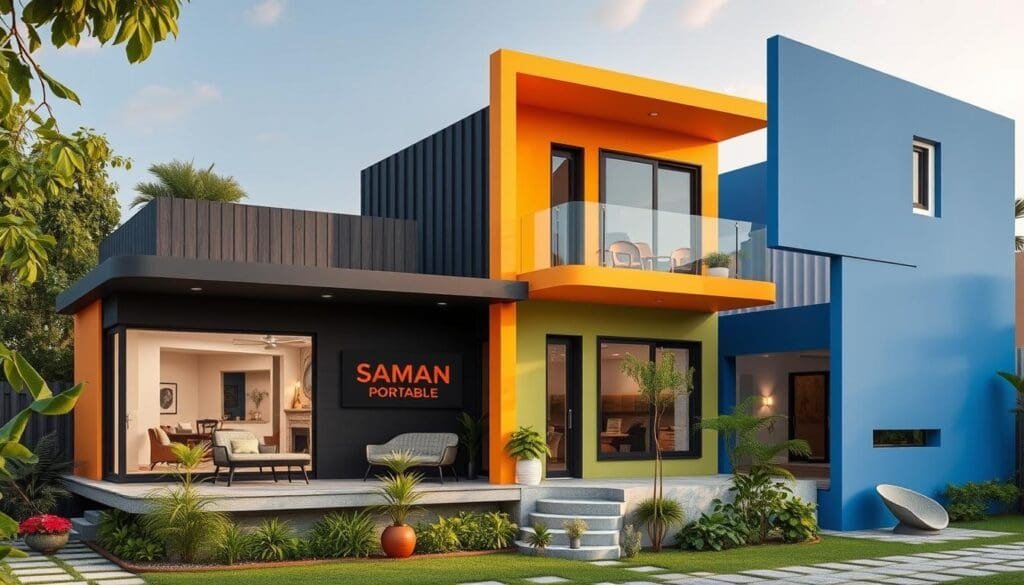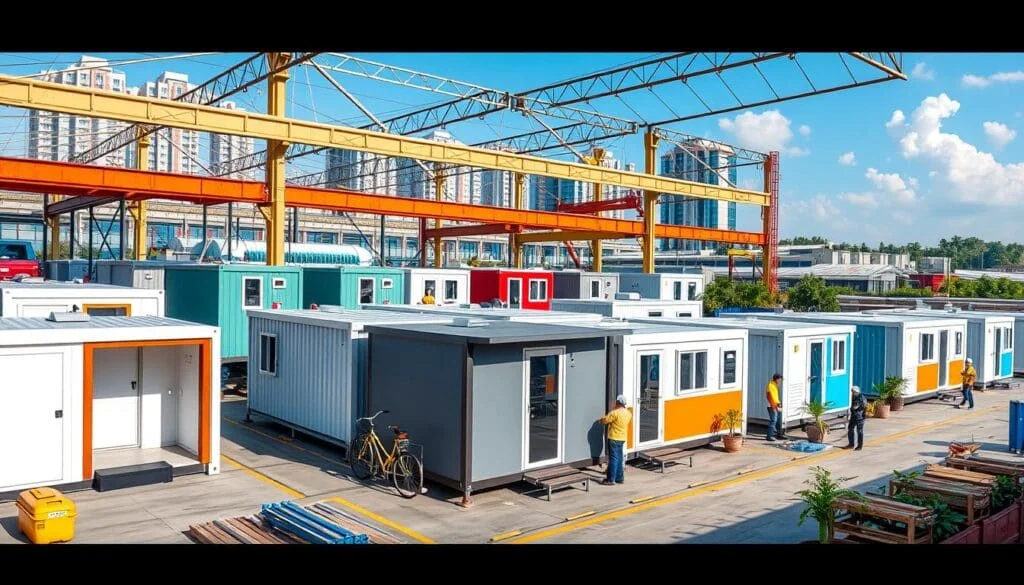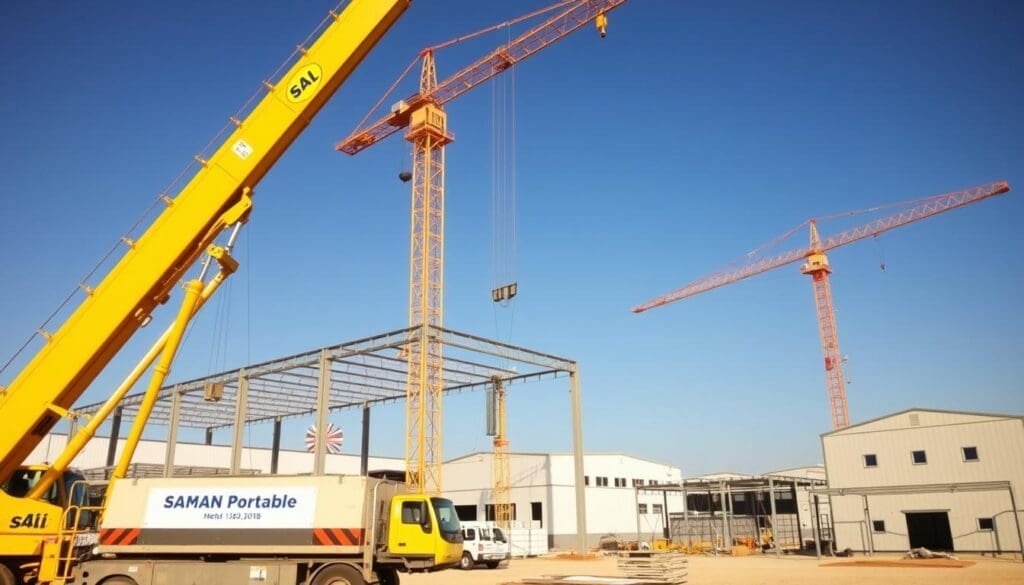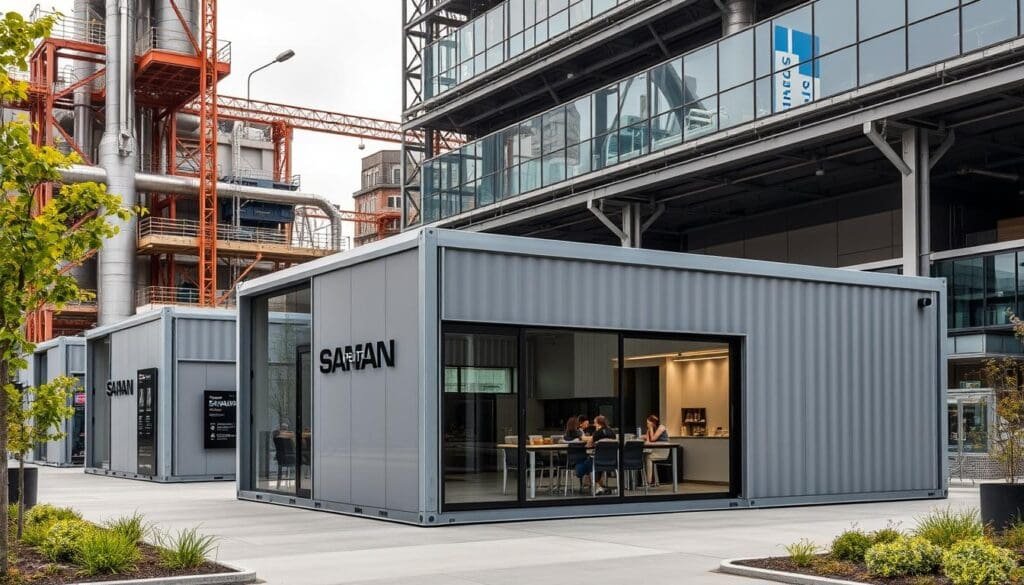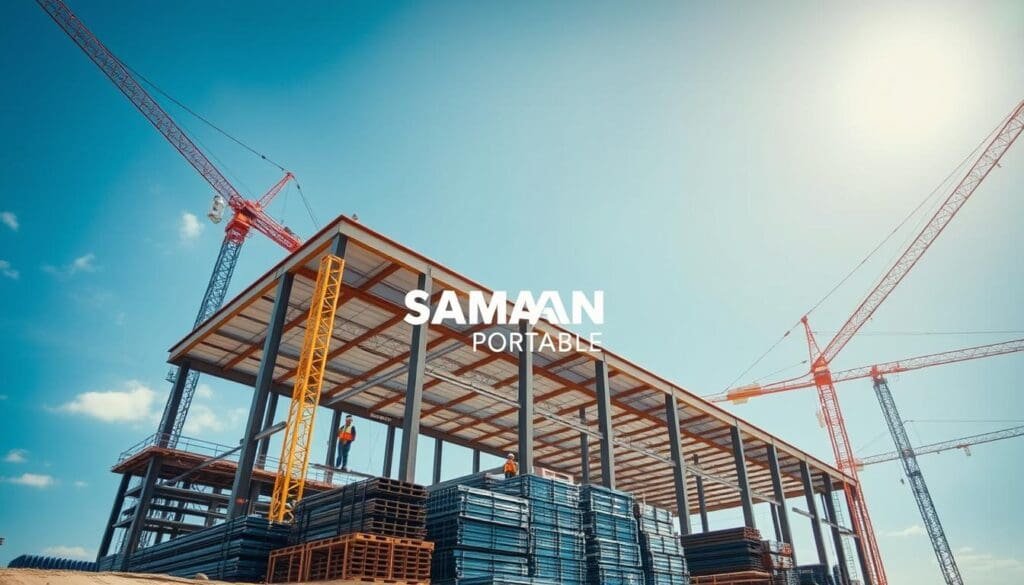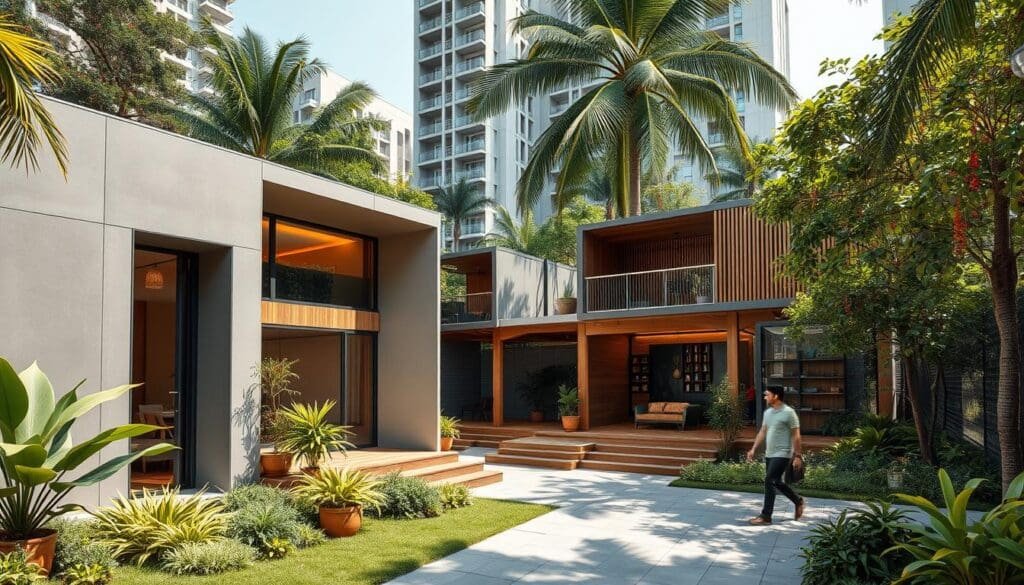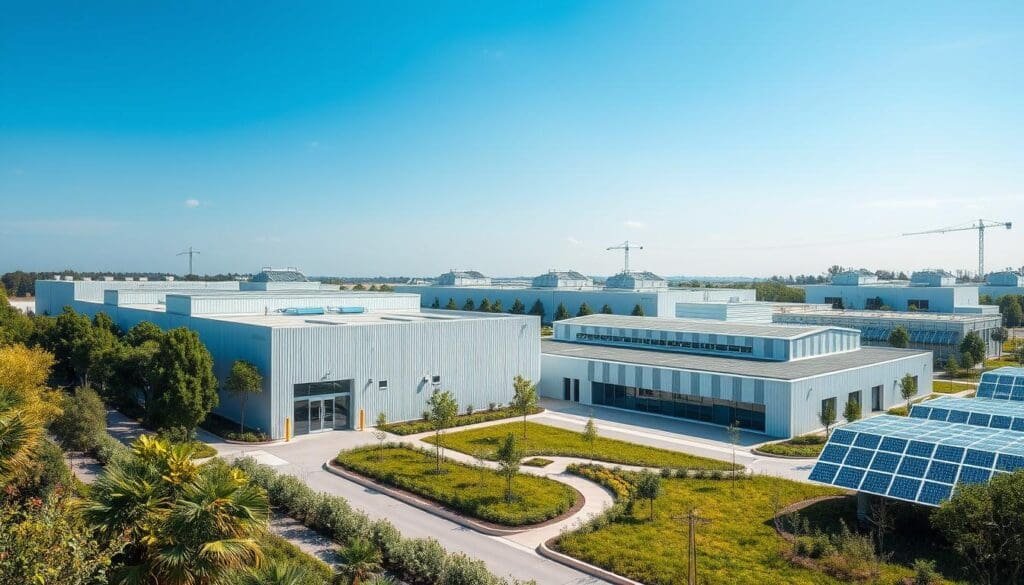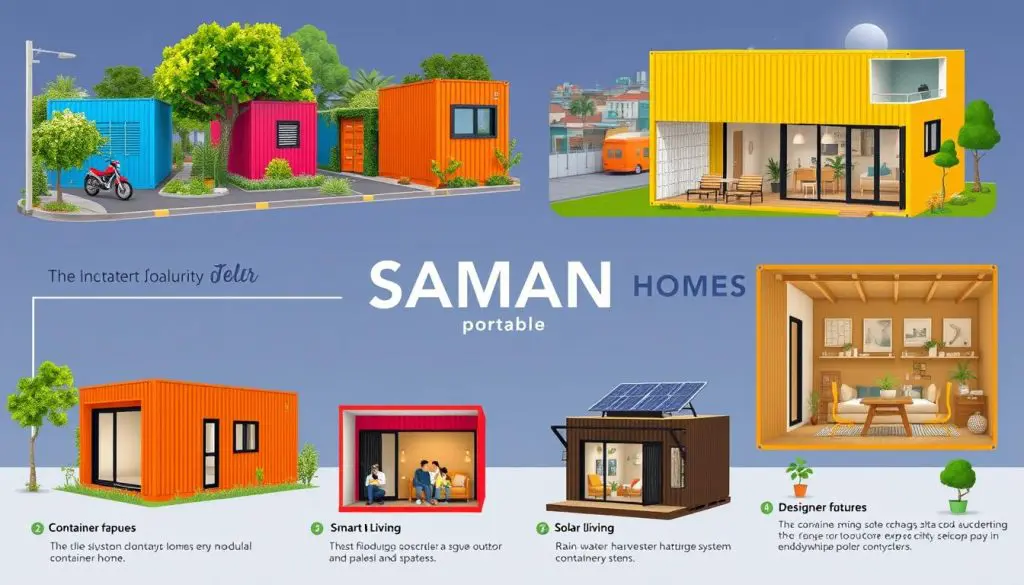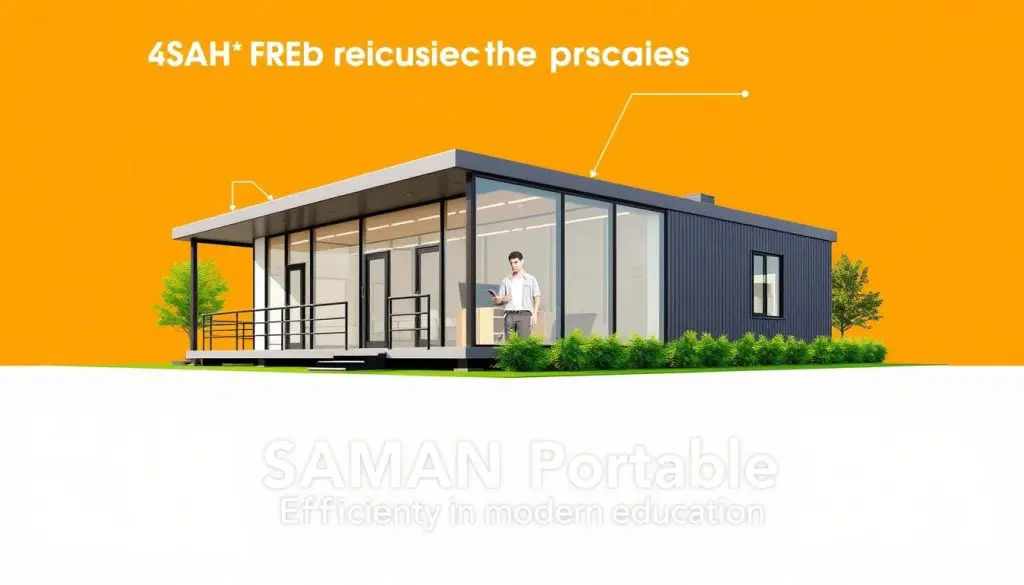Why Modular Buildings Are the Future for Indian Businesses
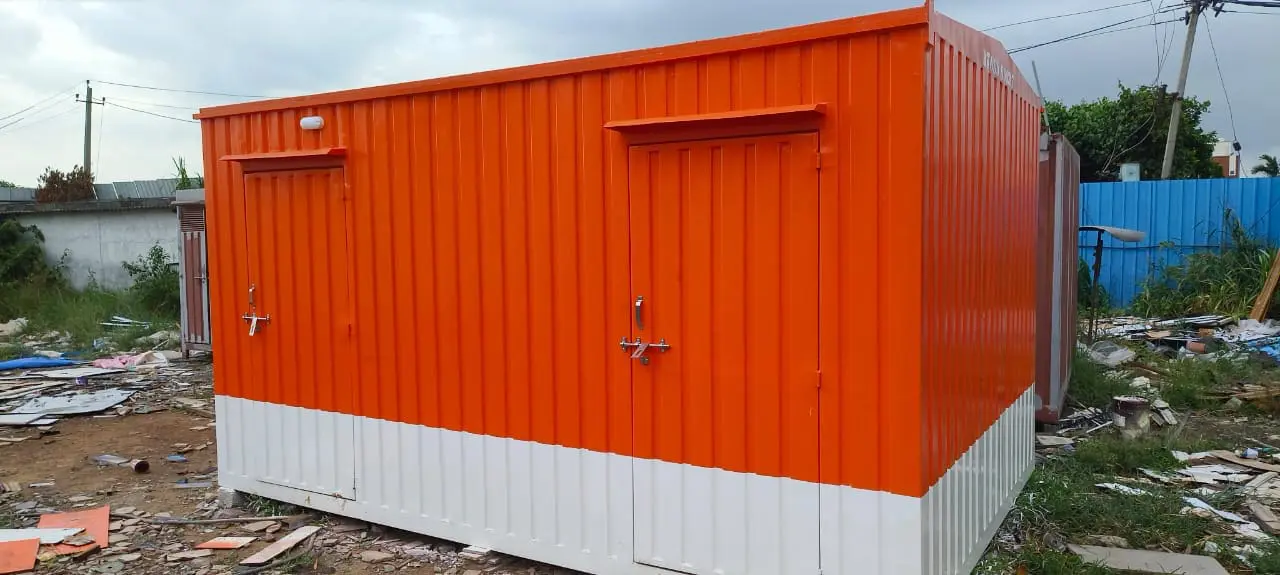
Top 10 Reasons Modular Buildings Are Perfect for Indian Businesses
1: Modular buildings: Cost-Effective
Modular buildings offer significant cost savings for Indian businesses. The primary advantage is their construction process, which takes place in a controlled factory environment. This method reduces labor costs and minimizes material waste. Since materials are purchased in bulk and used efficiently, businesses can save a considerable amount compared to traditional building methods. Moreover, the factory setting ensures consistent quality, which reduces the need for costly rework.
In addition to cost savings on materials and labor, modular buildings also shorten the construction timeline. Traditional construction can be delayed by weather, but modular buildings are assembled indoors, avoiding such delays. Once the modules are completed, they are transported to the site for quick assembly. This rapid installation process means businesses can start using their new spaces much sooner. Faster occupancy translates to quicker returns on investment, making modular buildings an excellent financial choice.
Another financial benefit of modular buildings is their flexibility and scalability. Businesses can start with a smaller building and add more modules as their needs grow. This adaptability eliminates the need for large upfront investments in oversized buildings. Furthermore, modular buildings can be easily relocated, offering businesses the flexibility to move or expand without incurring significant costs. This combination of affordability, speed, and flexibility makes modular buildings a practical and economical option for Indian businesses.

porta cabins for sales in Bangalore
3: Flexibility and Scalability
Modular buildings offer unparalleled flexibility and scalability, making them ideal for dynamic business environments. One of the key benefits is the ability to customize and expand these structures as your business grows. Unlike traditional buildings, modular constructions can be easily modified without extensive renovations. This means you can add new modules to your existing structure or reconfigure the interior layout to meet changing needs. This adaptability ensures that your workspace evolves with your business, providing a practical and future-proof solution.
Another advantage of modular buildings is their portability. If your business needs to relocate, these buildings can be dismantled and moved to a new site with minimal hassle. This flexibility is particularly beneficial for industries that require temporary setups, such as construction sites or event management. The ability to relocate your office or facility without incurring significant costs or delays gives your business a competitive edge. It also allows for efficient use of resources, as you can repurpose the same building for different projects or locations.
The scalability of modular buildings also translates to cost savings. You can start with a smaller structure and gradually expand as your needs grow, avoiding the large upfront costs associated with building a permanent facility. This incremental approach to expansion helps manage budgets more effectively and reduces financial risk. Additionally, the modular nature of these buildings means that any expansions or modifications can be completed quickly, minimizing downtime and ensuring continuity of operations. This combination of flexibility and scalability makes modular buildings a smart choice for businesses looking to adapt and grow in a rapidly changing market.
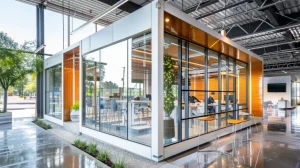
Modular Structures
4: Quality and Durability
Modular buildings stand out for their exceptional quality and durability. These structures are constructed in controlled factory environments, ensuring high standards throughout the building process. This setting allows for precise construction techniques and consistent quality control, reducing the risk of errors and defects. As a result, businesses can rely on modular buildings for their sturdiness and longevity. The materials used are often robust and designed to withstand various environmental conditions, providing a reliable solution for long-term use.
The durability of modular buildings is further enhanced by the rigorous testing and inspections they undergo during construction. Each module is thoroughly checked before being transported to the site, ensuring it meets all structural and safety standards. This level of scrutiny is difficult to achieve with traditional construction methods, where variables such as weather can affect the building process. The factory-based approach guarantees that each component of the building is built to last, giving businesses peace of mind about their investment.
In addition to quality and durability, modular buildings offer excellent resistance to common issues like mold, pests, and weather-related damage. The controlled environment in which they are built significantly reduces the chances of moisture-related problems, which are a common concern in traditional construction. Moreover, the materials used are often treated to resist pests and other potential hazards. This resilience makes modular buildings a sound choice for businesses seeking reliable and low-maintenance structures. With their high-quality construction and robust materials, modular buildings provide a durable and dependable option for a wide range of business needs.
5: Modular buildings Are Eco-Friendly
Modular buildings are a great choice for businesses focused on sustainability. They use eco-friendly construction methods that significantly reduce waste and environmental impact. In a factory setting, materials are used more efficiently. This efficiency minimizes waste compared to traditional construction. Additionally, any leftover materials are often recycled, further reducing the environmental footprint. This approach helps businesses meet their sustainability goals while benefiting the planet.
Energy efficiency is another key benefit of modular buildings. These structures are designed to be highly energy-efficient, incorporating features like advanced insulation, energy-efficient windows, and sustainable materials. Many modular buildings also include options for integrating renewable energy sources, such as solar panels. These features reduce energy consumption and lower utility bills, making them a cost-effective choice. Businesses can enjoy the dual benefits of saving money and promoting environmental responsibility.
Furthermore, modular buildings contribute to a reduction in site disturbance. Traditional construction sites can be messy and disruptive, often leading to soil erosion and other environmental issues. However, modular buildings are mostly assembled off-site, which means less disturbance to the surrounding area. When the modules are transported and assembled on-site, the process is quick and clean. This method preserves the natural landscape and minimizes the impact on local ecosystems. For businesses looking to reduce their ecological footprint, modular buildings offer a practical and eco-friendly solution.

8: Reduced Construction Waste
Modular buildings are known for their ability to significantly reduce construction waste, making them an environmentally friendly choice for businesses. Unlike traditional construction methods, which often generate large amounts of waste, modular buildings are constructed in a controlled factory setting. This environment allows for precise planning and efficient use of materials. As a result, businesses can minimize waste and contribute to more sustainable building practices.
Moreover, the factory-based construction process ensures that leftover materials are managed more effectively. Any excess materials can be recycled or repurposed for other projects, reducing the overall environmental impact. This systematic approach to material management not only conserves resources but also lowers disposal costs. For businesses focused on sustainability, this reduction in waste aligns with green building goals and corporate responsibility initiatives.
Additionally, the efficiency of modular construction translates to cleaner job sites. Since a significant portion of the building is completed off-site, there is less disruption and mess at the final location. This reduces the environmental footprint and makes the construction process more streamlined and less intrusive. The reduced waste and cleaner sites benefit not only the environment but also the surrounding community. By choosing modular buildings, businesses can play a vital role in promoting sustainable construction practices and reducing their impact on the planet.
9: Improved Safety Standards
Modular buildings offer improved safety standards, making them a preferred choice for many businesses. The controlled environment of a factory setting ensures that all construction processes adhere to strict safety protocols. Workers in these settings are protected from common hazards found on traditional construction sites, such as weather conditions and unstable surfaces. This controlled environment significantly reduces the risk of accidents and injuries, ensuring a safer construction process.
Additionally, modular buildings undergo rigorous quality control checks. Each module is inspected thoroughly before it leaves the factory, ensuring that it meets all safety standards and building codes. This meticulous inspection process is difficult to achieve on traditional construction sites, where various factors can compromise safety. The high level of oversight in modular construction means that any potential issues are identified and corrected before the modules reach the site, ensuring a safer final product.
Furthermore, the installation of modular buildings is faster and more efficient, reducing on-site risks. The quick assembly process minimizes the time workers spend on-site, further decreasing the chances of accidents. Traditional construction sites often face delays due to weather or other unforeseen factors, which can lead to prolonged exposure to safety risks. Modular construction, however, mitigates these risks by completing most of the work off-site. This method not only enhances safety but also ensures a smoother, more predictable construction timeline. By choosing modular buildings, businesses can benefit from improved safety standards, leading to a safer and more efficient construction process.
10: Versatility in Applications
Modular buildings are incredibly versatile, making them suitable for a wide range of applications. One of their primary uses is in the education sector, where they provide quick and efficient solutions for expanding schools and universities. These buildings can be customized to create classrooms, laboratories, and administrative offices. The ability to rapidly deploy these structures allows educational institutions to accommodate growing student populations and changing needs without lengthy construction delays.
In addition to education, the healthcare sector also benefits from modular buildings. Hospitals and clinics can use these structures to quickly expand their facilities, adding extra patient rooms, operating theaters, or temporary testing sites. The speed and efficiency of modular construction are crucial in healthcare, where timely expansion can significantly impact patient care. Moreover, modular buildings can be designed to meet strict health and safety standards, ensuring a safe environment for both patients and staff.
The versatility of modular buildings extends to commercial and retail applications as well. Businesses can use these buildings for office spaces, retail stores, and even restaurants. The customizable nature of modular construction allows businesses to create spaces that reflect their brand and meet specific operational needs. Furthermore, the ability to relocate modular buildings makes them an excellent choice for businesses that need to move frequently or operate in multiple locations. This flexibility ensures that businesses can adapt to market demands and operational changes quickly and efficiently. Modular buildings offer a practical, cost-effective, and adaptable solution for various industries, making them an ideal choice for modern businesses.
Modular Buildings: The Future of Sustainable Construction in India
Modular buildings represent the future of sustainable construction in India. These structures are designed and constructed in a controlled factory environment, which significantly reduces waste and enhances efficiency. By using precise measurements and efficient materials, modular buildings minimize the environmental impact compared to traditional construction methods. This approach not only conserves resources but also lowers costs, making it an attractive option for businesses and developers seeking sustainable solutions.
One of the key benefits of modular buildings is their energy efficiency. These buildings often incorporate advanced insulation, energy-efficient windows, and other eco-friendly features that help reduce energy consumption. Additionally, modular construction allows for the integration of renewable energy sources such as solar panels and wind turbines. By reducing reliance on non-renewable energy sources, modular buildings contribute to a greener future. This energy efficiency translates into lower utility bills and a reduced carbon footprint, making them a smart choice for eco-conscious businesses and homeowners.
Moreover, modular buildings are highly adaptable, which makes them ideal for the diverse needs of Indian businesses and communities. They can be customized to fit various purposes, from residential homes to office spaces and healthcare facilities. This flexibility ensures that modular buildings can meet the unique requirements of different sectors while maintaining sustainability. Furthermore, the quick assembly and disassembly of modular buildings allow for easy relocation and repurposing, extending their lifecycle and further reducing environmental impact. As India continues to grow and develop, modular buildings offer a sustainable, efficient, and versatile construction solution that aligns with the country’s environmental goals.
Modular Offices: The Key to Flexible Workspaces for Indian Companies
Modular offices are revolutionizing the way Indian companies approach workspace solutions. These innovative structures offer unparalleled flexibility, allowing businesses to adapt their office space quickly and efficiently. Unlike traditional buildings, modular offices can be customized and reconfigured to meet the changing needs of a growing company. Whether you need additional meeting rooms, open workspaces, or private offices, modular buildings provide a versatile solution that can be easily adjusted as your business evolves.
One of the significant advantages of modular offices is their rapid construction and installation process. Traditional office buildings can take months or even years to complete, but modular buildings are constructed off-site in a controlled environment. This method not only speeds up the construction timeline but also ensures higher quality and consistency. Once the modules are completed, they are transported to the desired location and assembled quickly. This means businesses can move into their new office space much sooner, minimizing downtime and disruption to operations.
Moreover, prefab buildings are cost-effective and environmentally friendly. The factory-based construction process reduces material waste and allows for the use of sustainable building practices. Additionally, modular buildings are designed to be energy-efficient, incorporating features such as advanced insulation and energy-saving windows. These eco-friendly aspects help businesses reduce their carbon footprint and operating costs. Furthermore, the ability to relocate and repurpose modular offices adds to their long-term value, making them an attractive investment for companies looking to maintain flexibility and sustainability.
Modular Construction for Disaster Relief: Rapid Response Solutions
Modular construction offers an efficient solution for disaster relief, providing rapid response capabilities in times of crisis. When natural disasters strike, traditional building methods can be too slow to meet urgent needs. Modular buildings, however, are pre-fabricated in factories, allowing them to be quickly assembled on-site. This speed is crucial in disaster scenarios where time is of the essence. Communities can benefit from immediate shelter, medical facilities, and other essential infrastructure, helping to stabilize the situation and support recovery efforts.
Moreover, the portability of modular buildings makes them ideal for disaster relief. These structures can be easily transported to affected areas, regardless of how remote or difficult to access. Once on-site, they can be set up rapidly, providing immediate relief. This mobility ensures that help can reach those in need faster than with traditional construction methods. Additionally, modular buildings can be designed to withstand harsh conditions, offering durable and reliable shelter in the face of ongoing challenges.
Another significant advantage of modular construction in disaster relief is the flexibility and scalability it provides. Modular buildings can be customized to serve various functions, from emergency housing and medical clinics to command centers and storage facilities. This adaptability allows relief organizations to quickly set up the necessary infrastructure to meet diverse needs. Furthermore, as the situation evolves, additional modules can be added or reconfigured to expand capacity or adjust to changing requirements. This flexibility ensures that modular construction can provide comprehensive and scalable solutions in disaster-stricken areas.
Porta Cabins: A Prime Example of Modular Buildings
Porta cabins exemplify the benefits of modular buildings, providing flexible and cost-effective solutions for various business needs. These portable structures are pre-fabricated in a factory, ensuring high-quality construction and quick installation times. Businesses can have their new space ready in a fraction of the time it would take to build a traditional structure. This rapid setup is especially beneficial for companies needing immediate office space or temporary accommodations.
One of the standout features of porta cabins is their flexibility and scalability. Businesses can easily expand or modify these structures to suit changing requirements. Whether you need additional office space, meeting rooms, or storage areas, porta cabins can be reconfigured with minimal disruption. This adaptability ensures that your workspace evolves with your business, providing a practical and future-proof solution. Moreover, porta cabins can be relocated, making them ideal for businesses that need to move frequently or operate in multiple locations.
Additionally, porta cabins are an eco-friendly option, aligning with the growing emphasis on sustainability. The controlled factory construction process reduces material waste and energy consumption. Porta cabins are also designed to be energy-efficient, incorporating features such as advanced insulation and energy-saving windows. This not only helps reduce operating costs but also minimizes the environmental impact. By choosing porta cabins, businesses can achieve their sustainability goals while enjoying the benefits of a flexible, cost-effective workspace. These advantages make porta cabins a prime example of how modular buildings can meet the diverse needs of modern businesses in India.
Conclusion
Modular buildings, exemplified by porta cabins, offer Indian businesses a host of benefits, from cost-effective construction and quick installation times to flexibility and eco-friendly solutions. These structures are built in controlled factory environments, ensuring high quality and consistency. Their rapid setup is ideal for businesses needing immediate office space or temporary accommodations.
Porta cabins are highly adaptable, allowing businesses to expand or modify their spaces with minimal disruption. This scalability makes them a practical, future-proof solution. Additionally, the ability to relocate porta cabins is perfect for businesses that need to move frequently or operate in multiple locations. Their energy-efficient designs and sustainable construction practices further enhance their appeal, helping businesses achieve their sustainability goals.
For more detailed information on porta cabin pricing, you can check out this complete guide to porta cabin prices for 2024. If you are interested in storage solutions, consider exploring the options for transportable container storage. For any inquiries or further information, you can contact them directly through their contact page or submit your questions via their enquiry form.
In conclusion, porta cabins provide a versatile, efficient, and sustainable solution for modern businesses in India, demonstrating why modular buildings are becoming an increasingly popular choice in today’s fast-paced and environmentally conscious world.
 Container Cafe
Container Cafe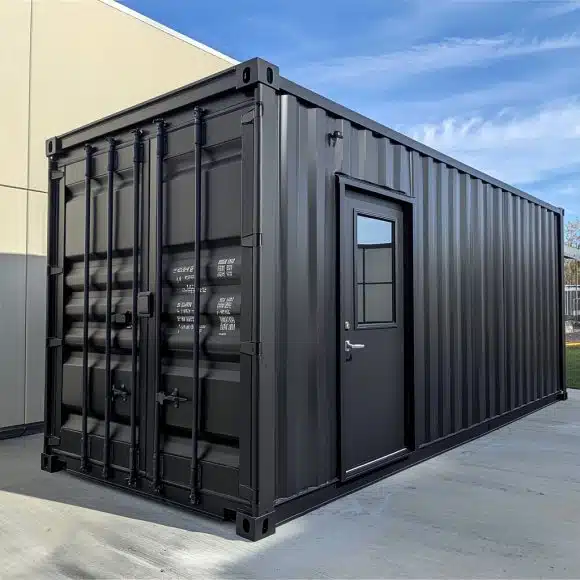
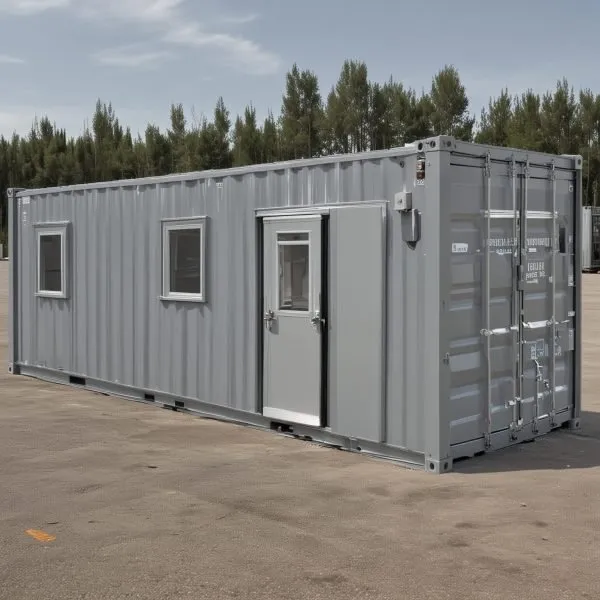
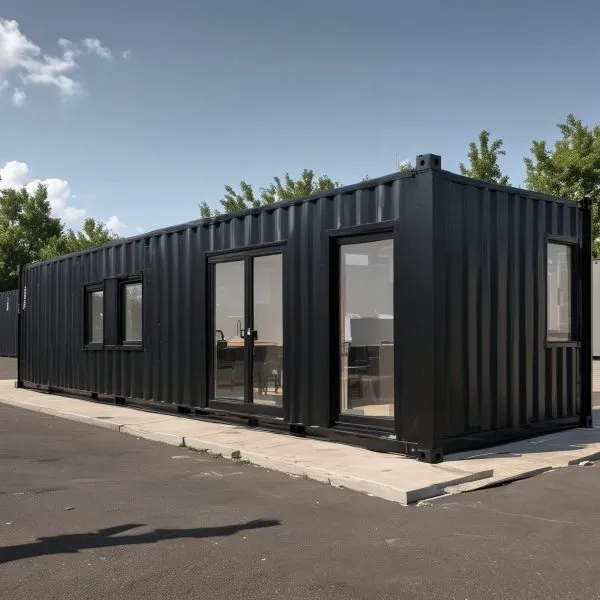
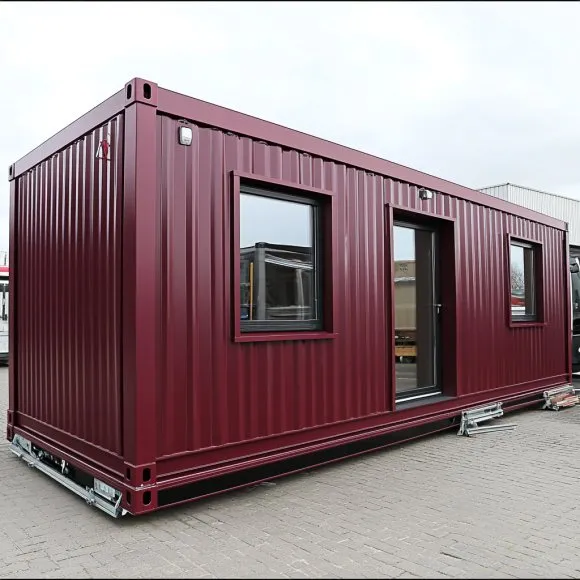
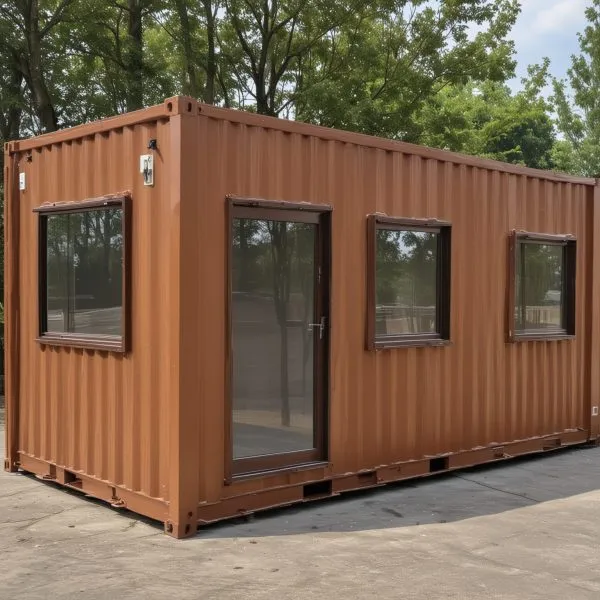
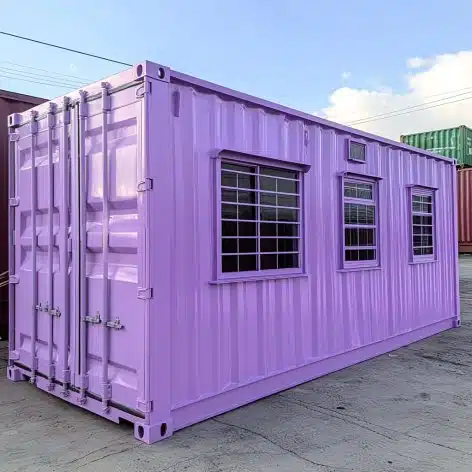
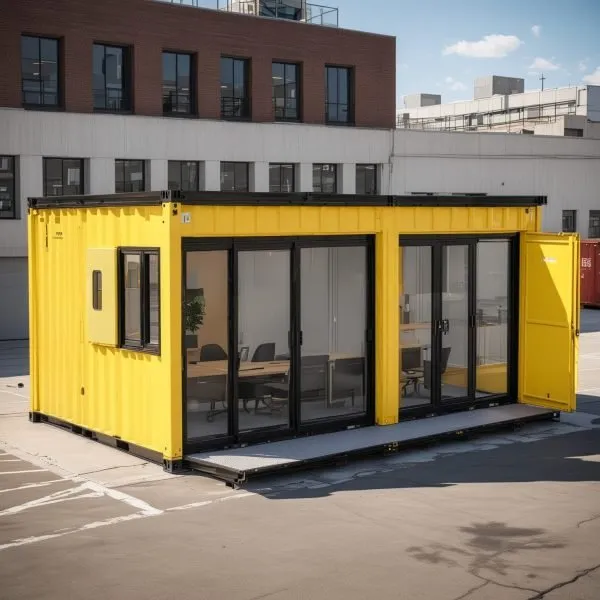


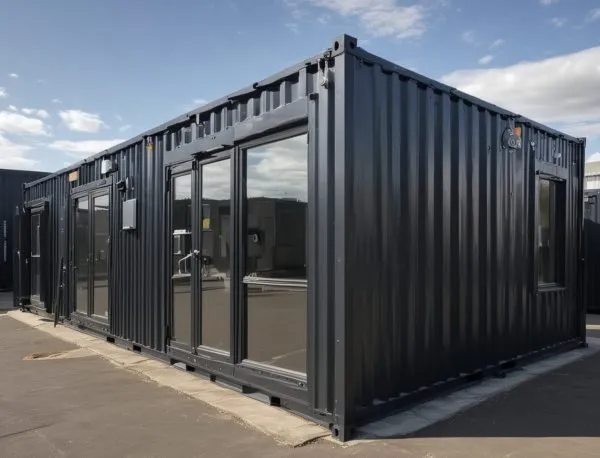
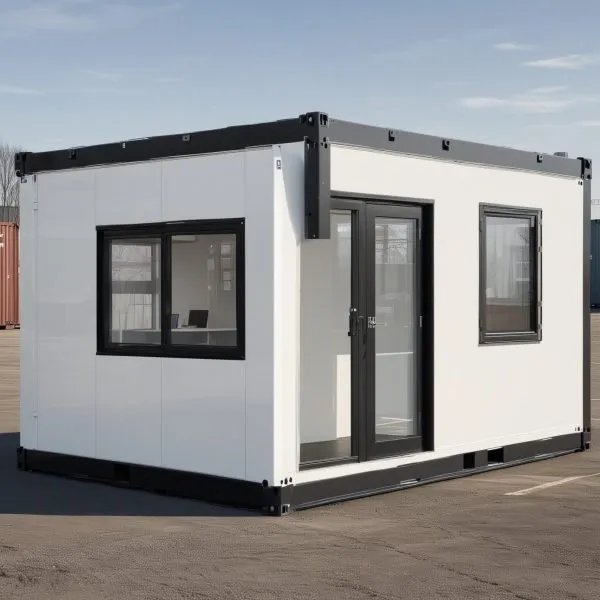
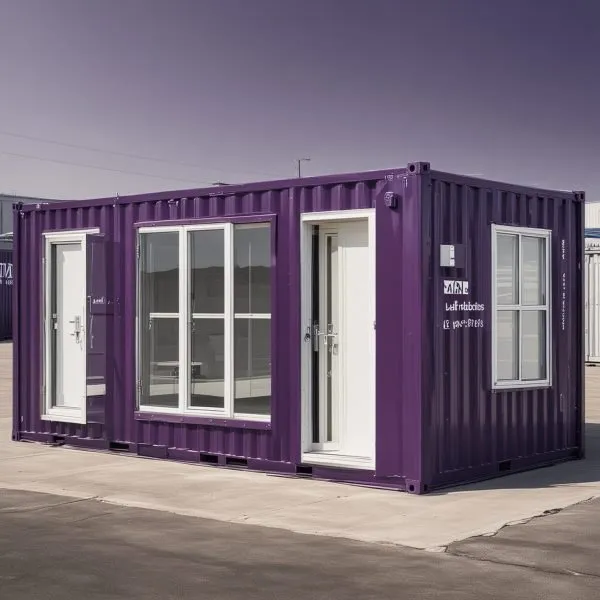

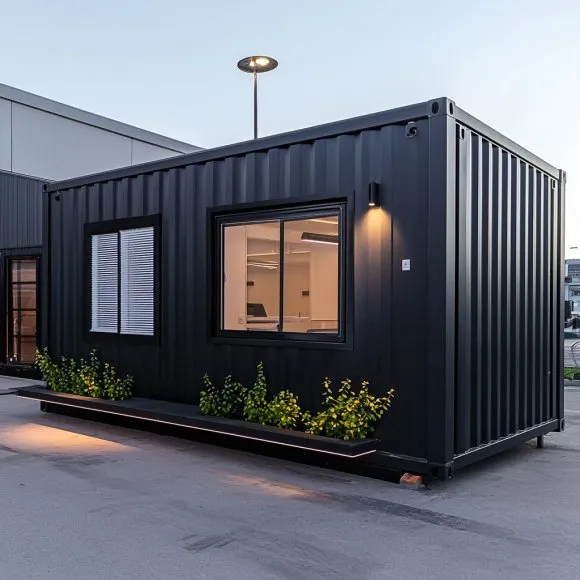
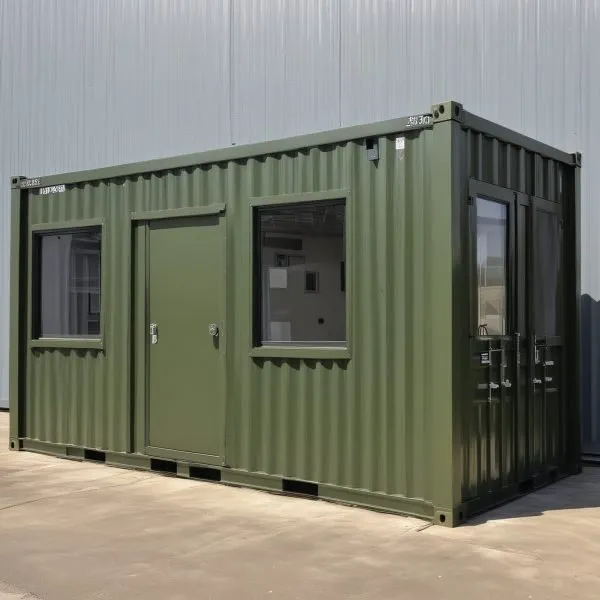
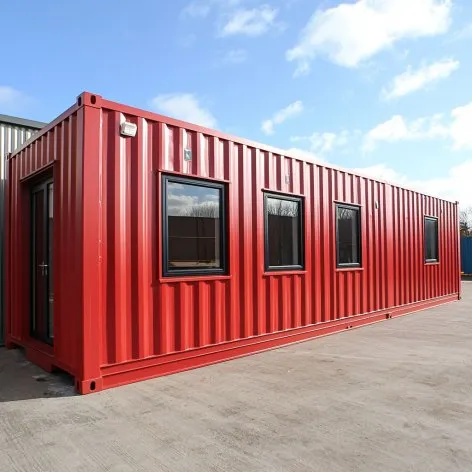
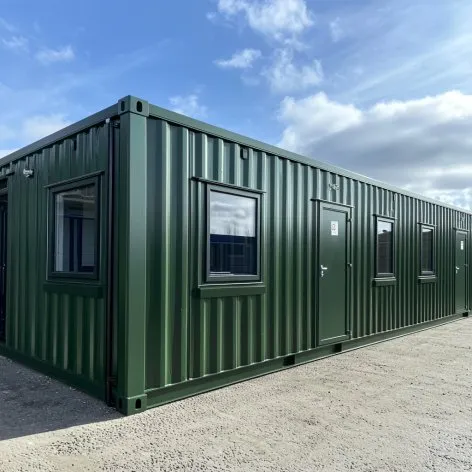
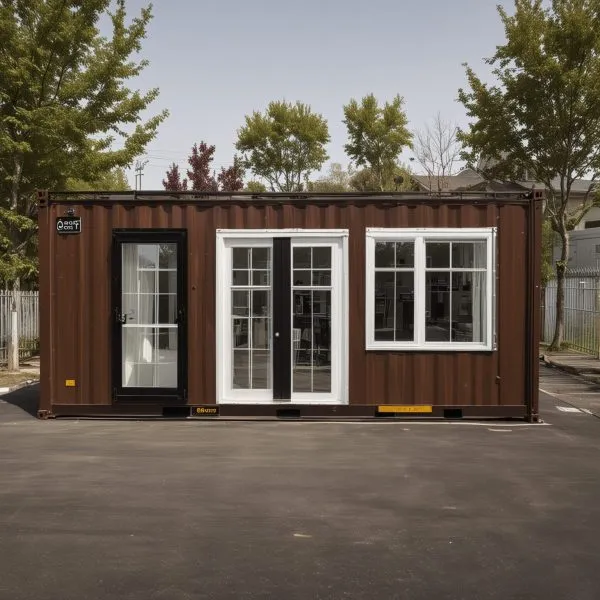
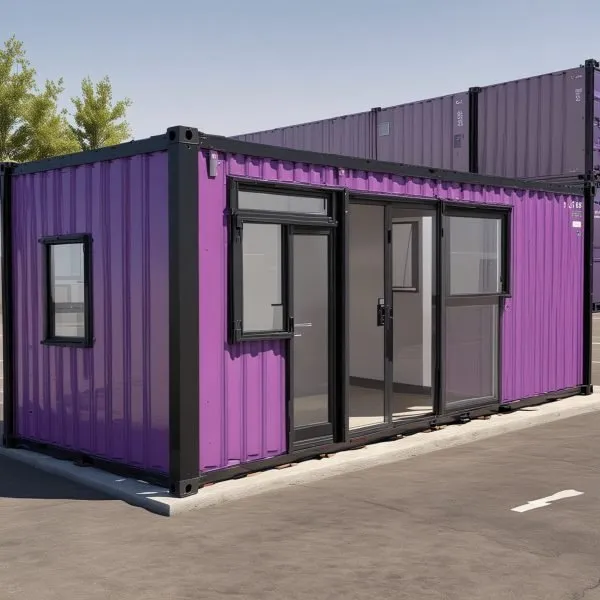
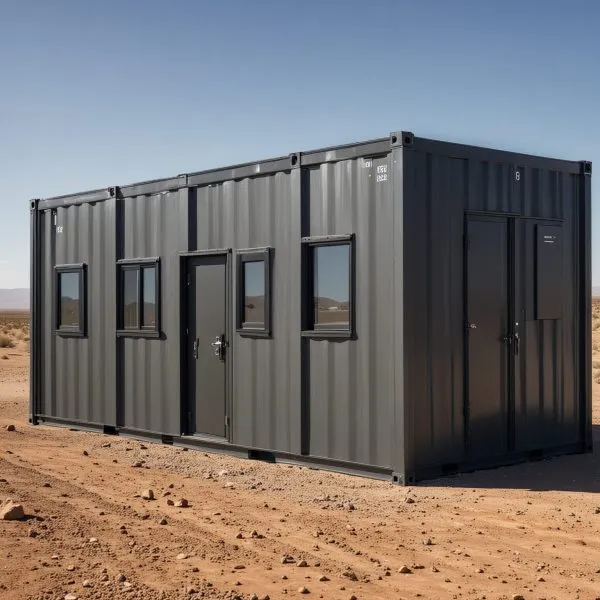
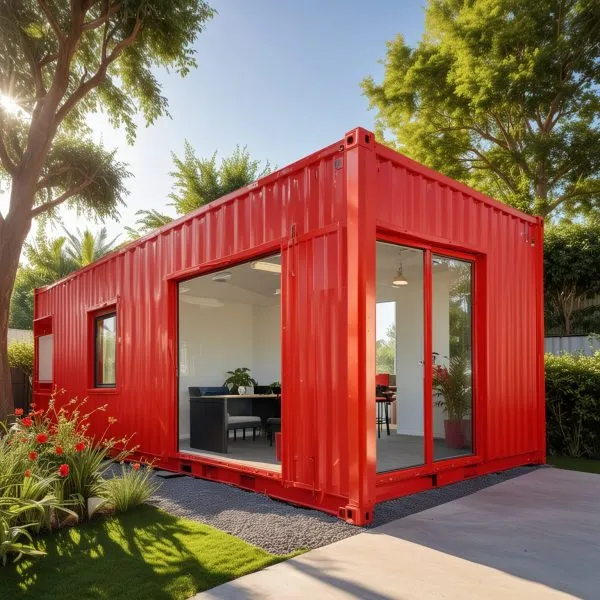
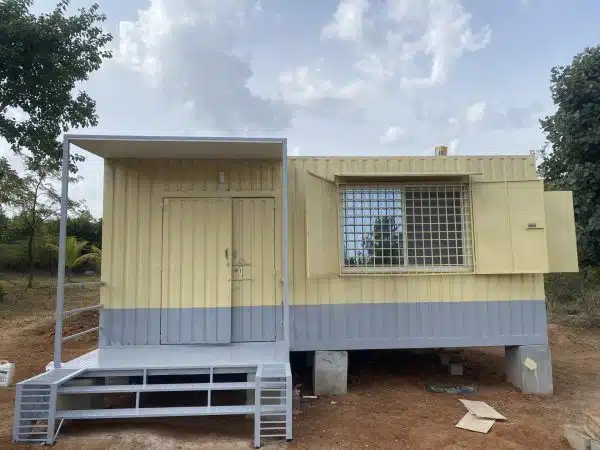
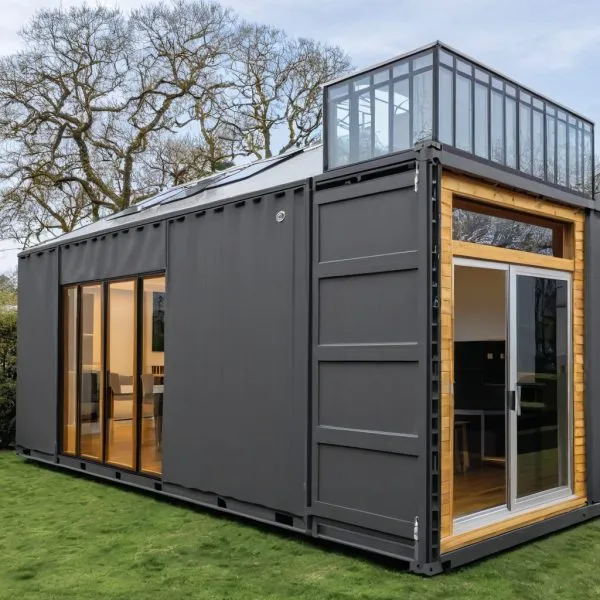
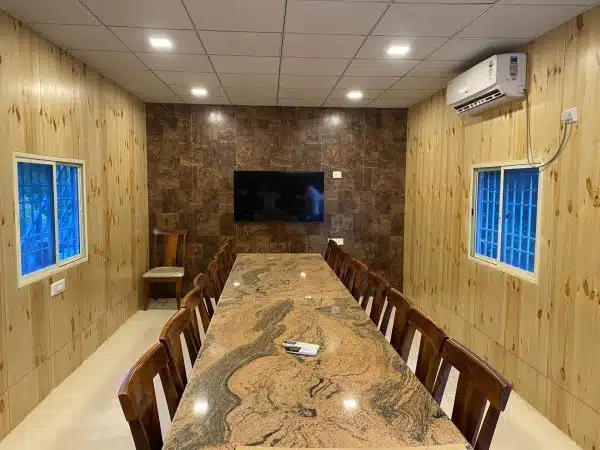
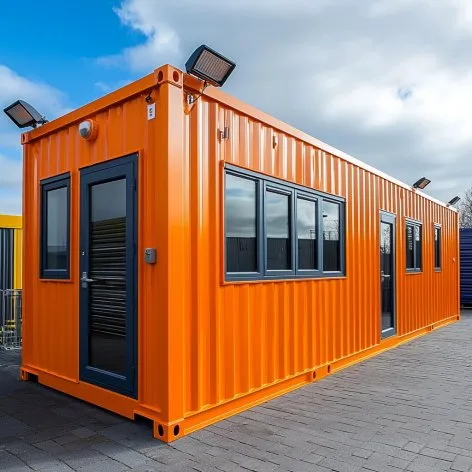
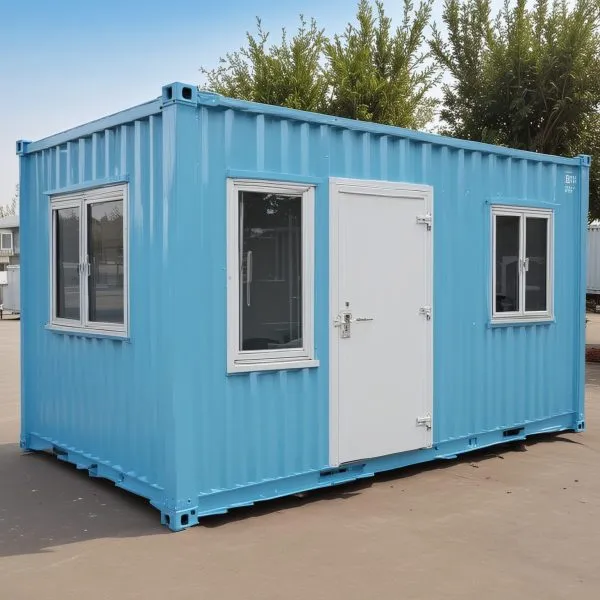

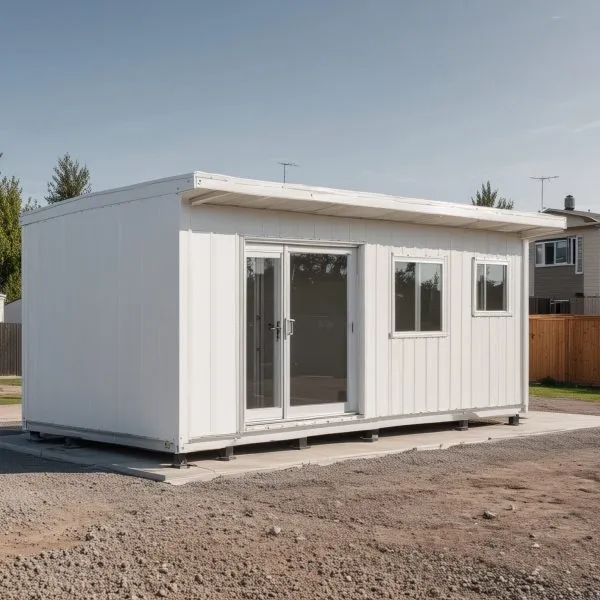
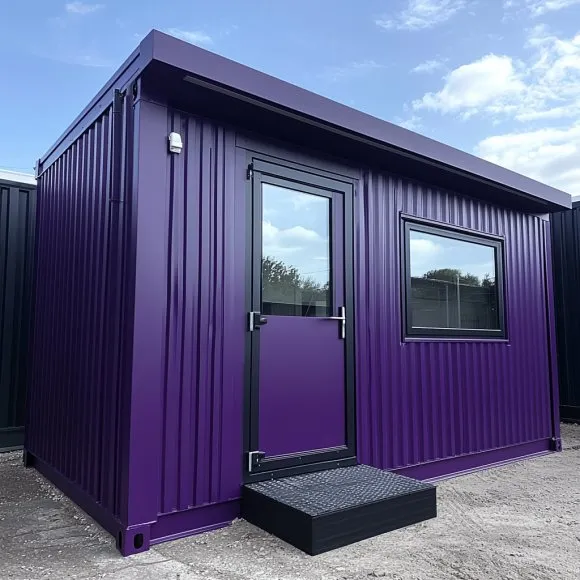

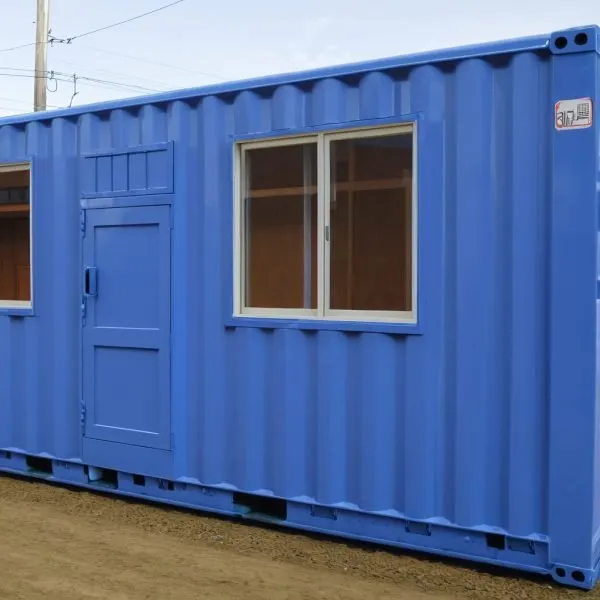


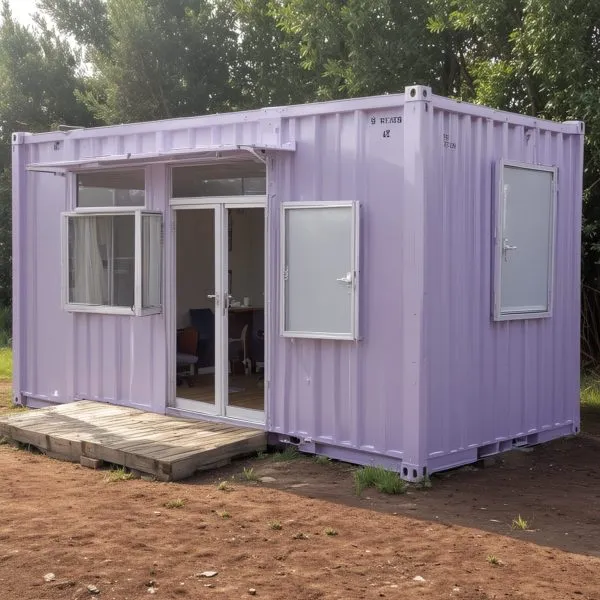
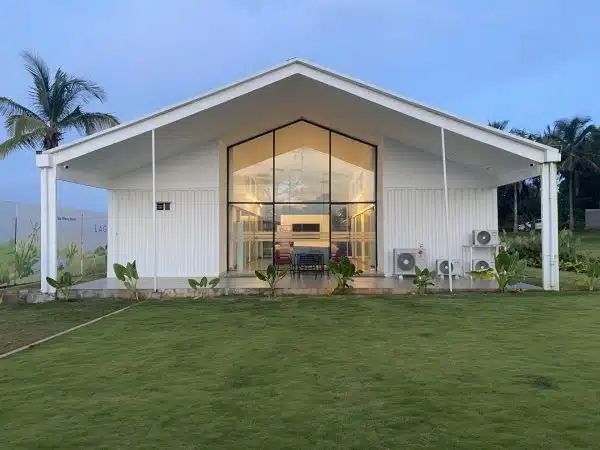
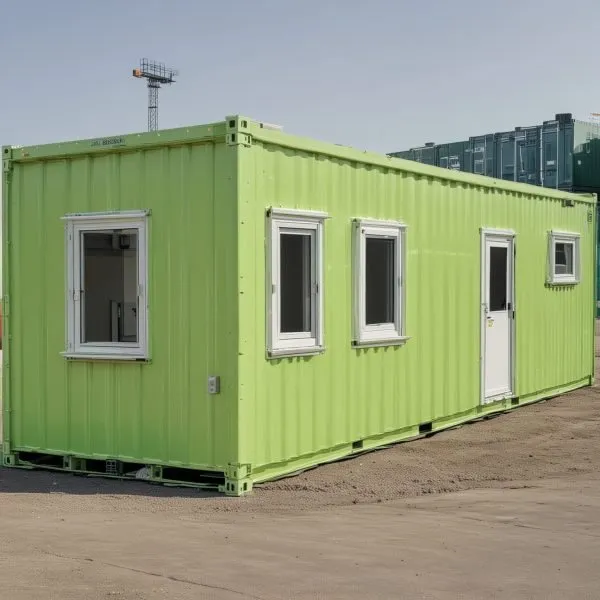
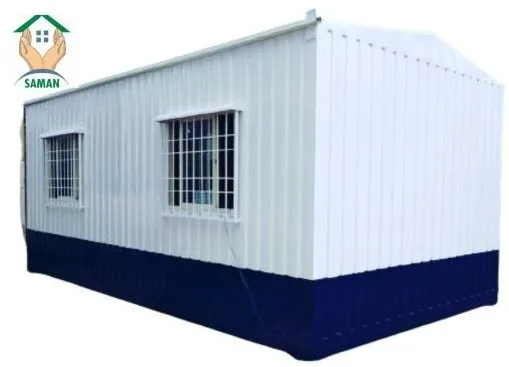
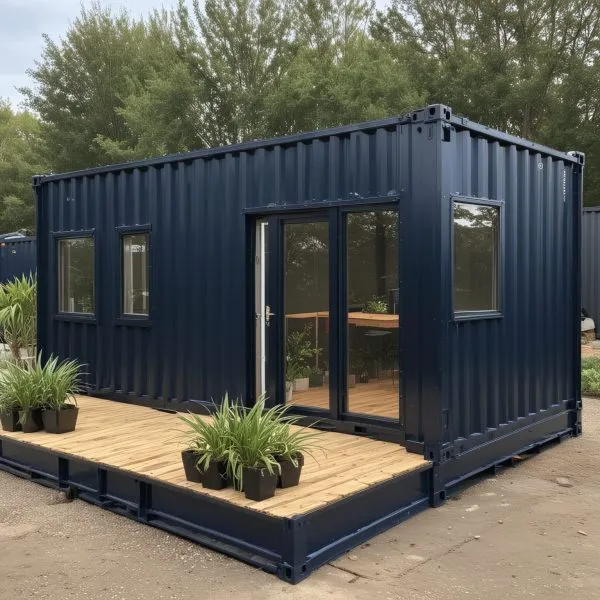
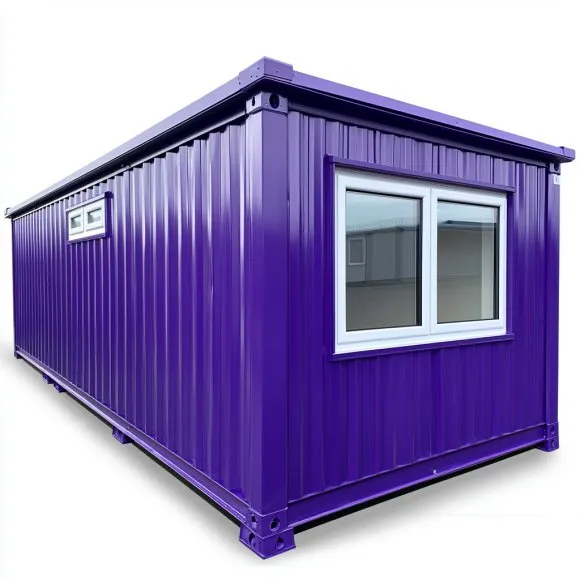
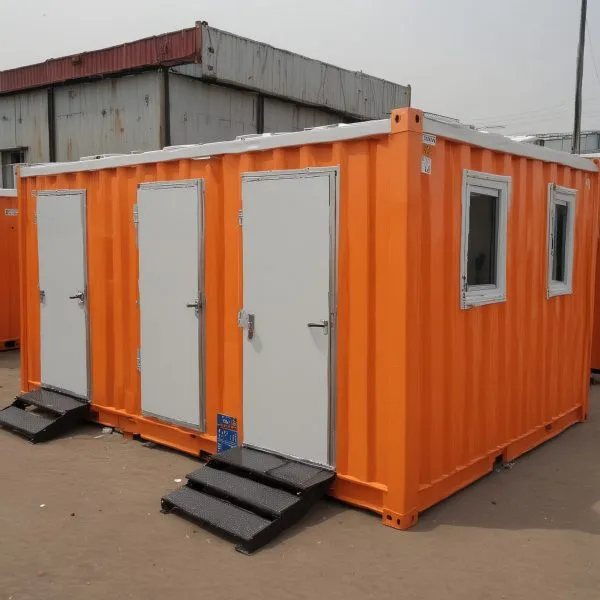
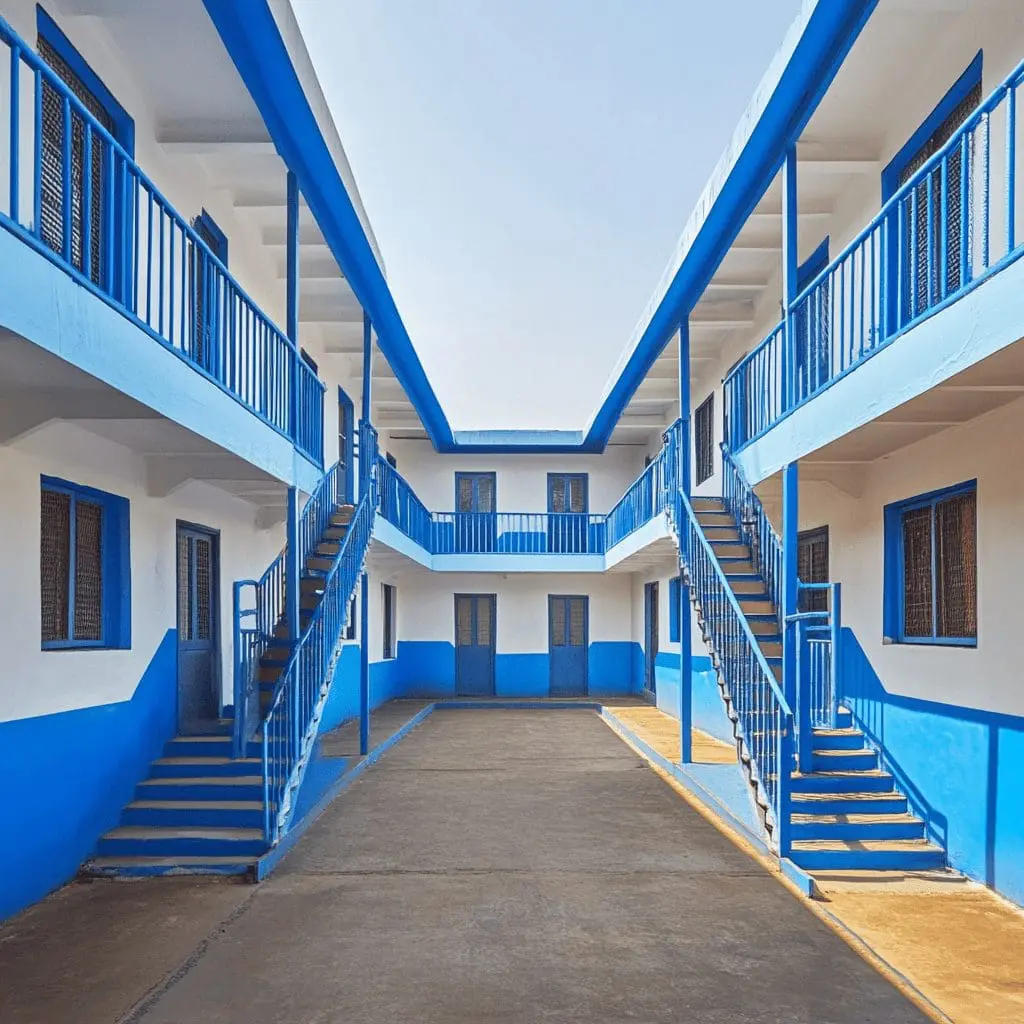
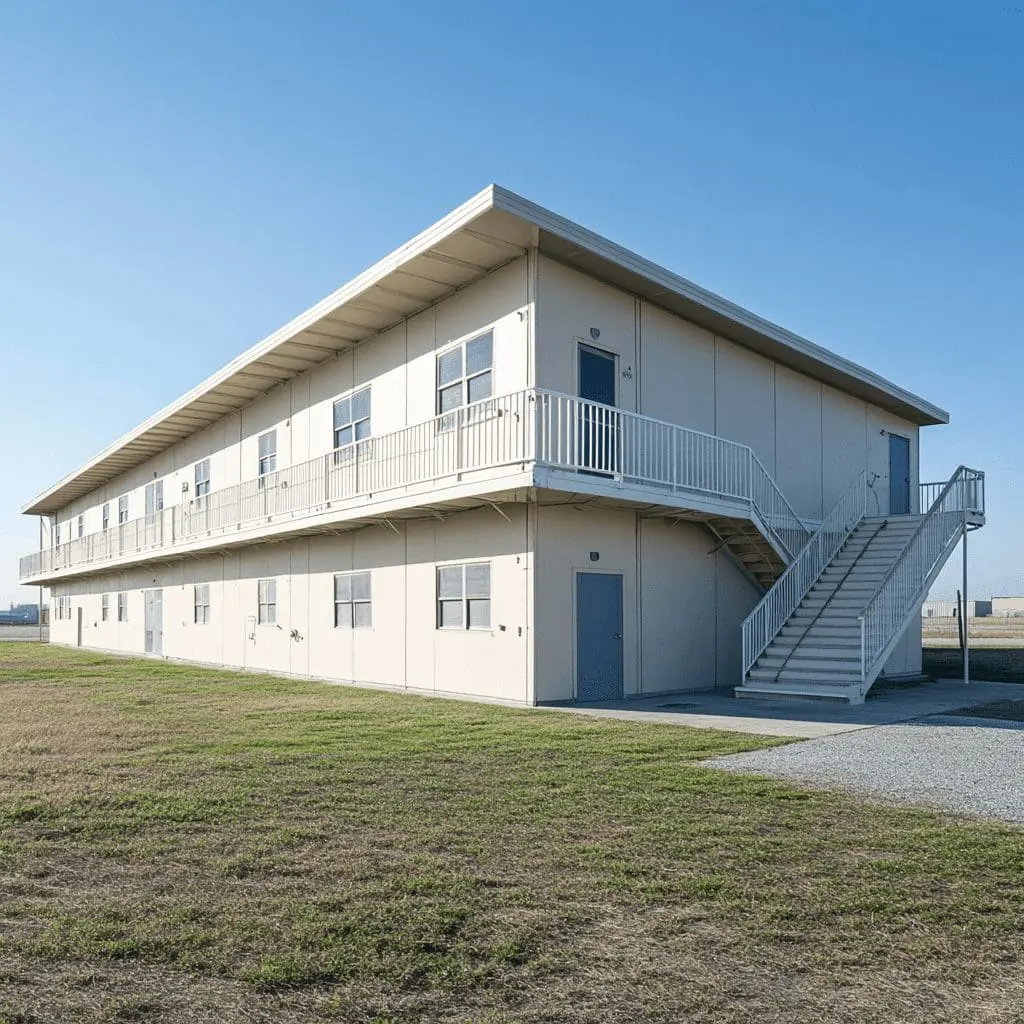
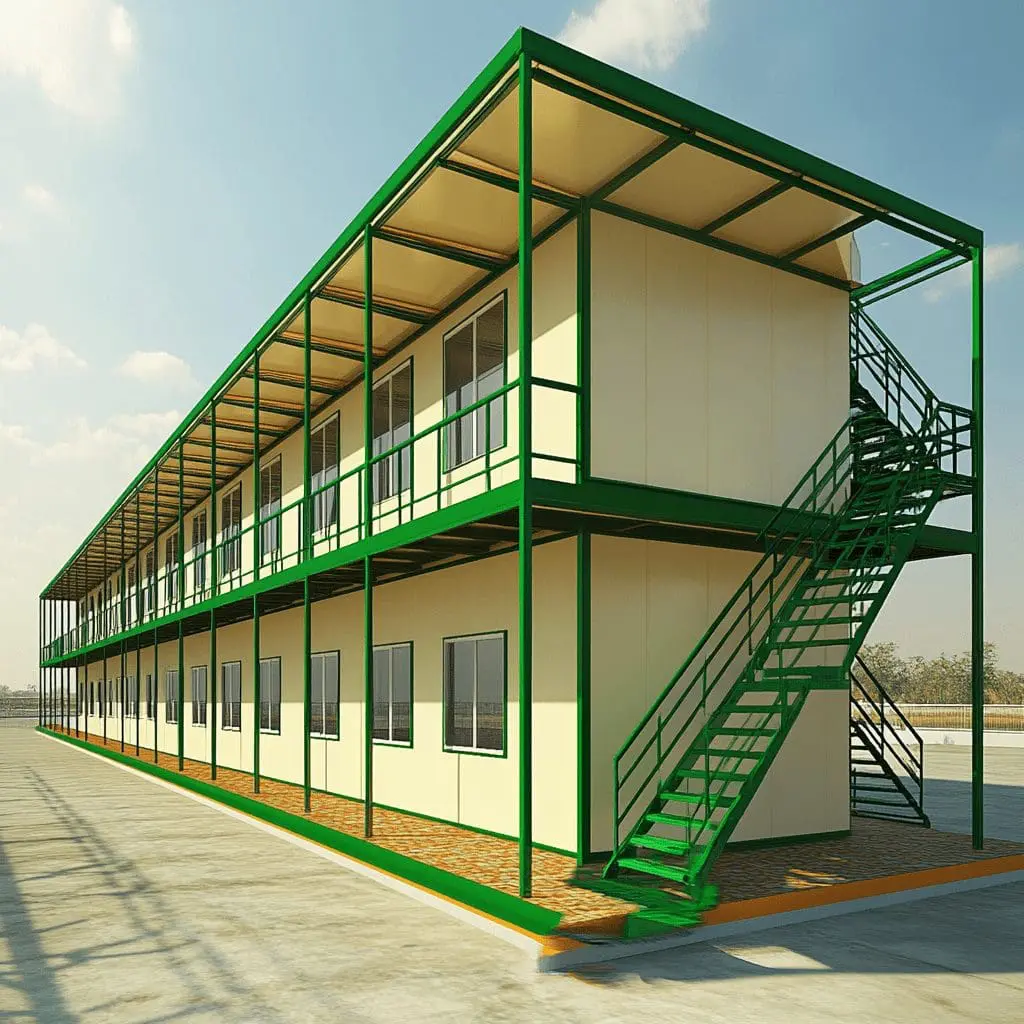


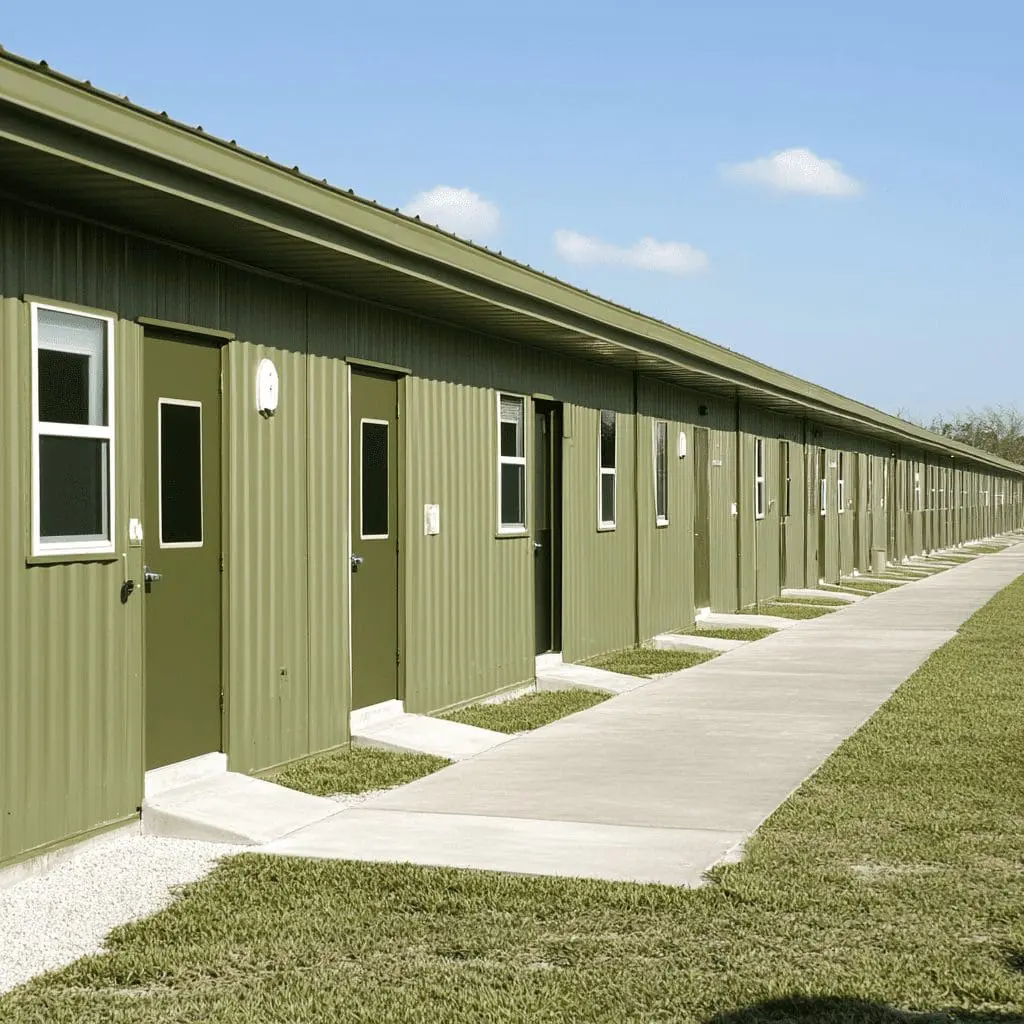
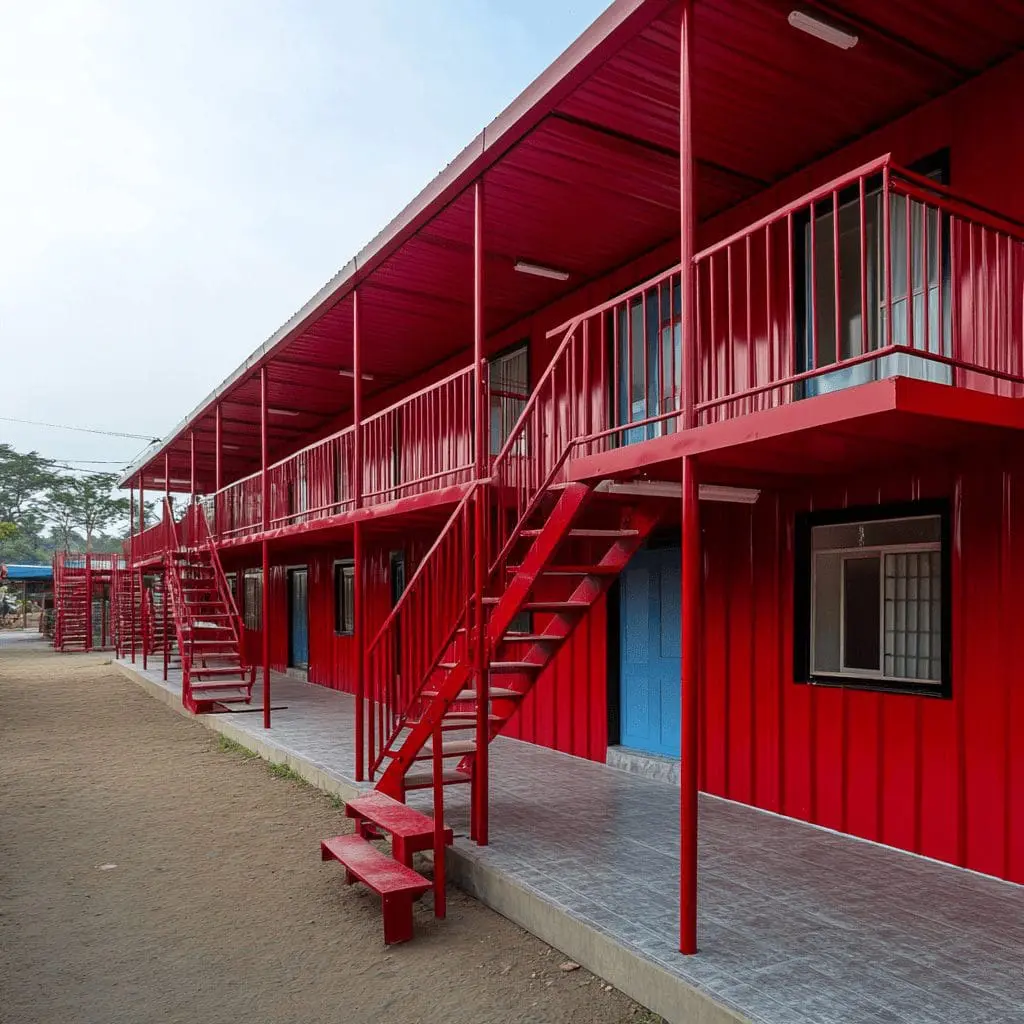

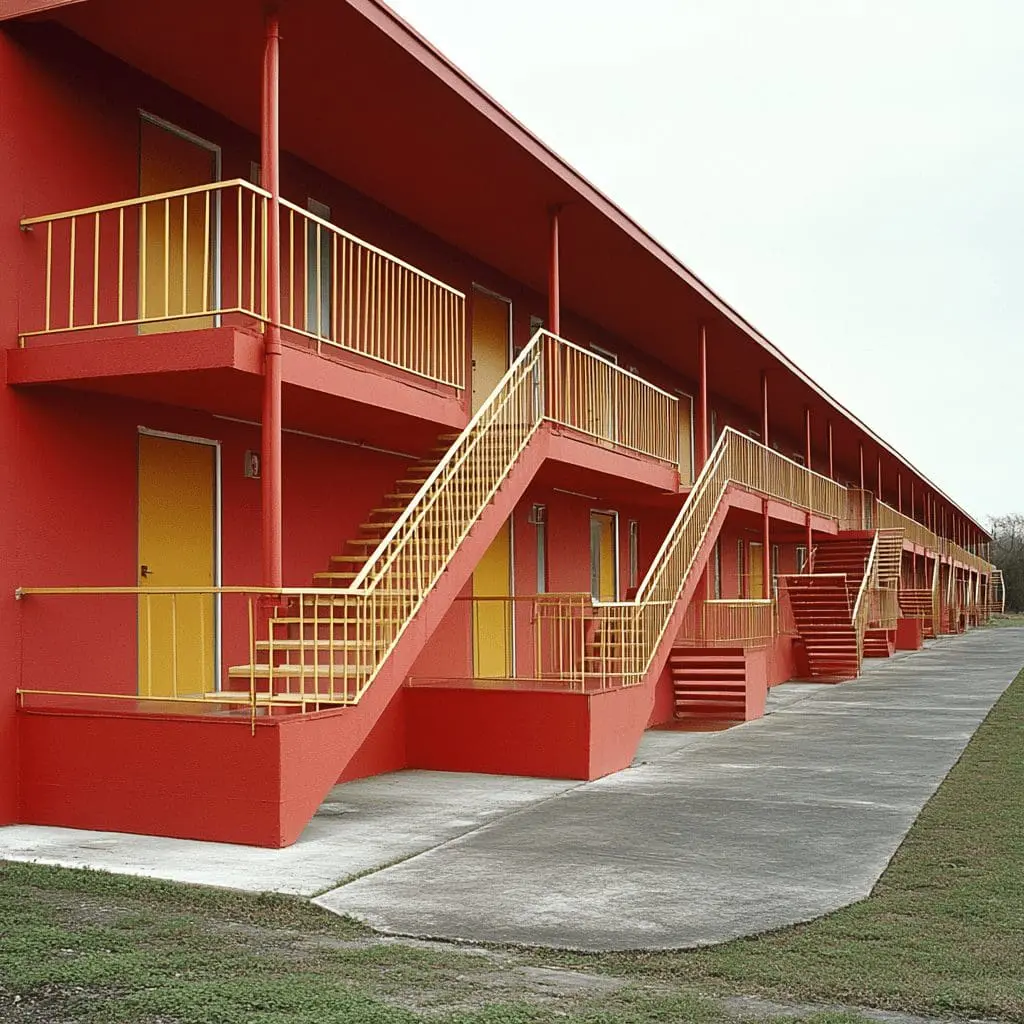

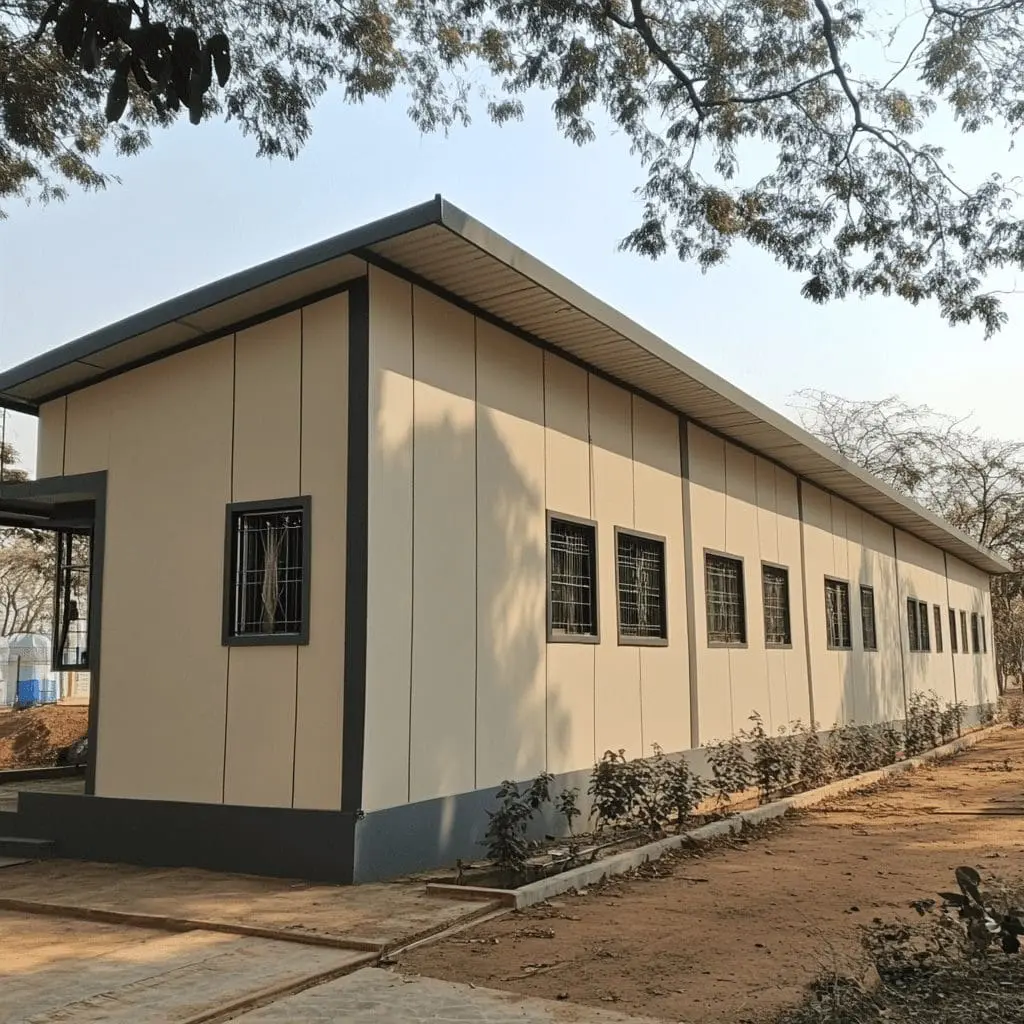
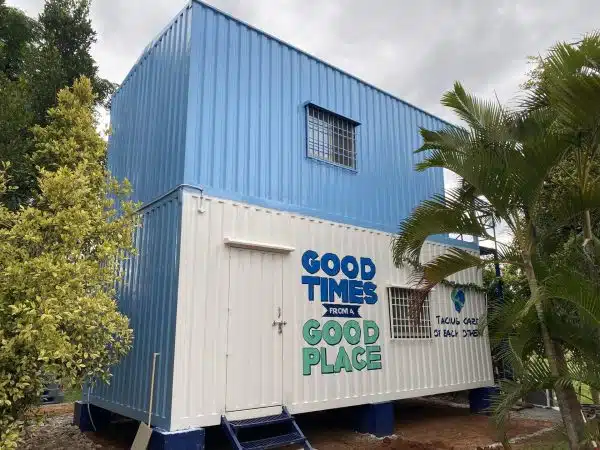
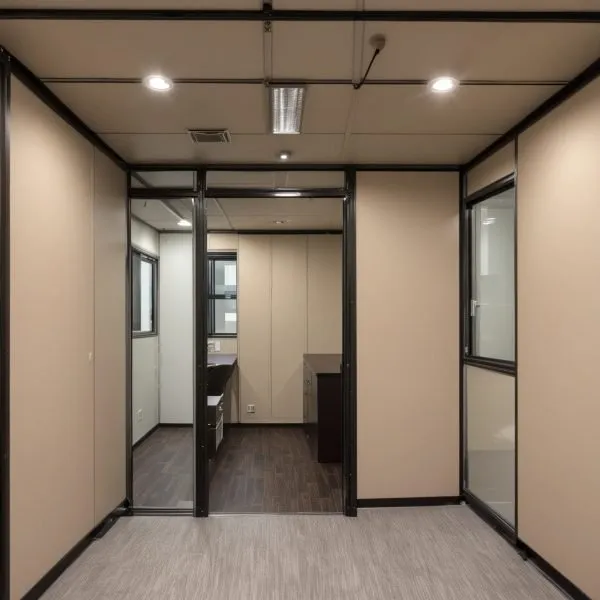
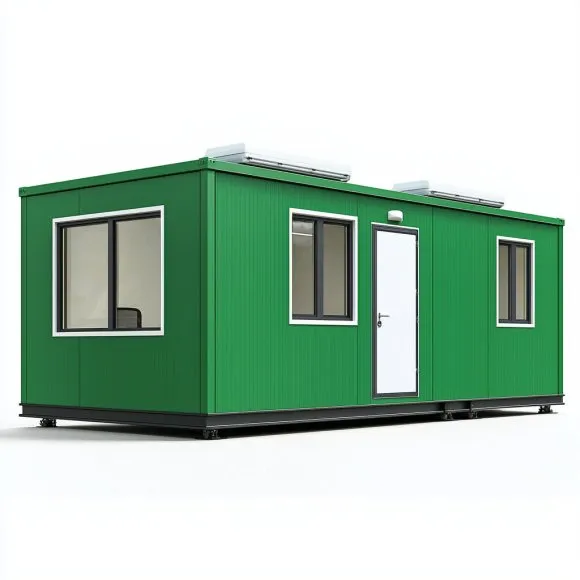

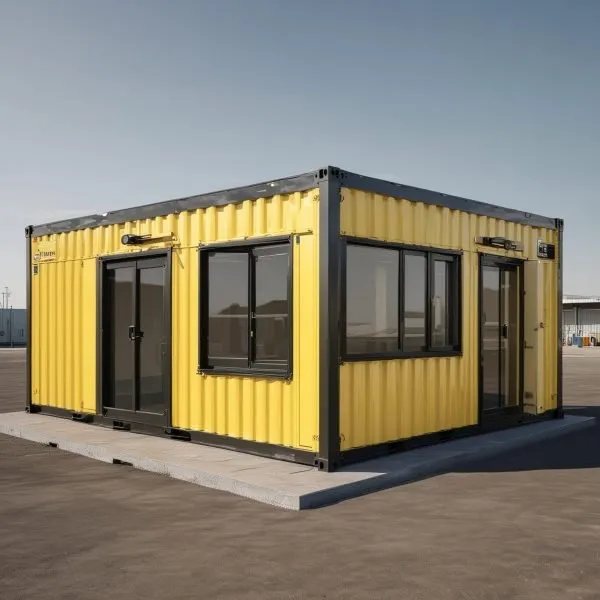

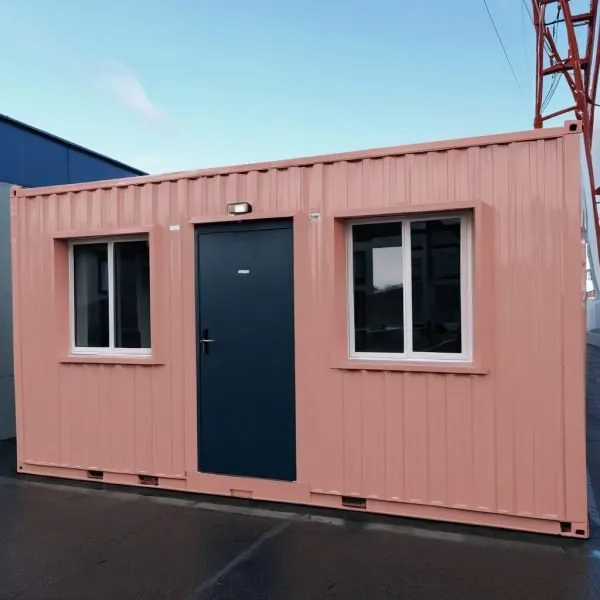
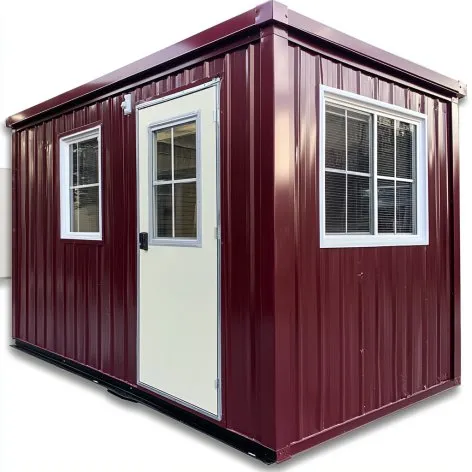
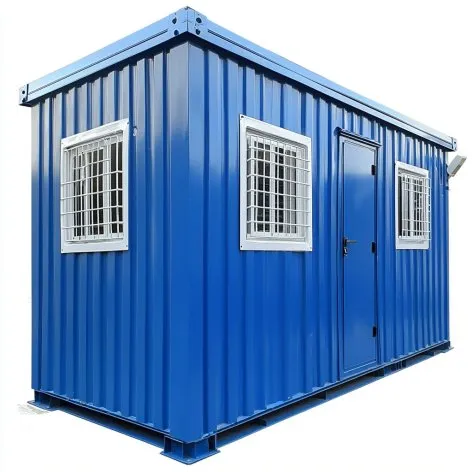
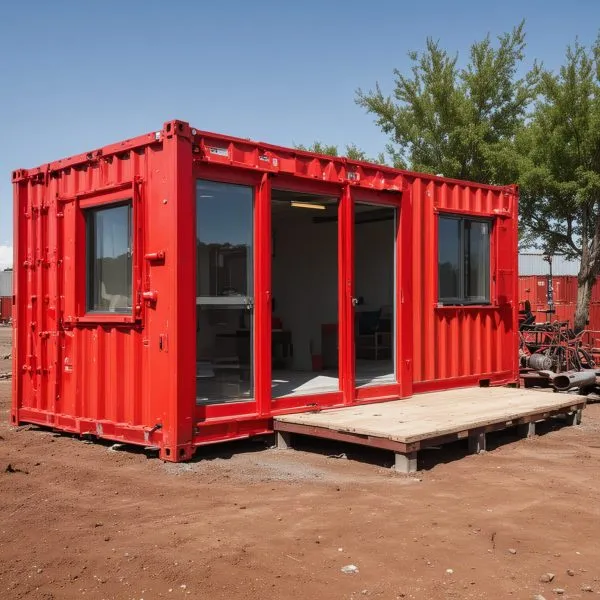
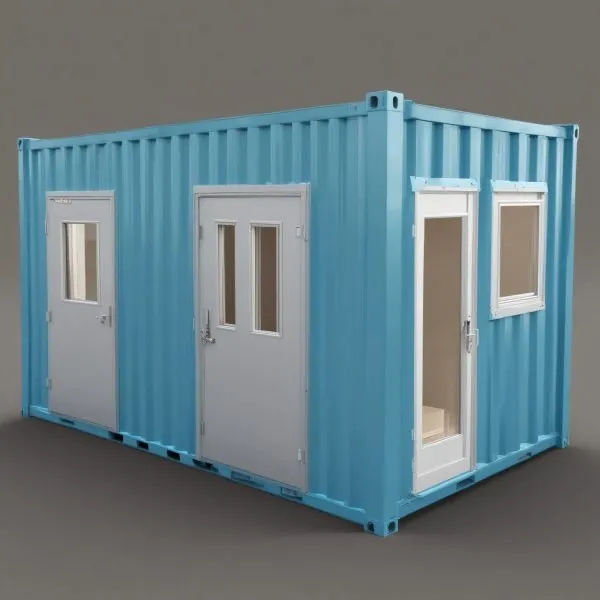
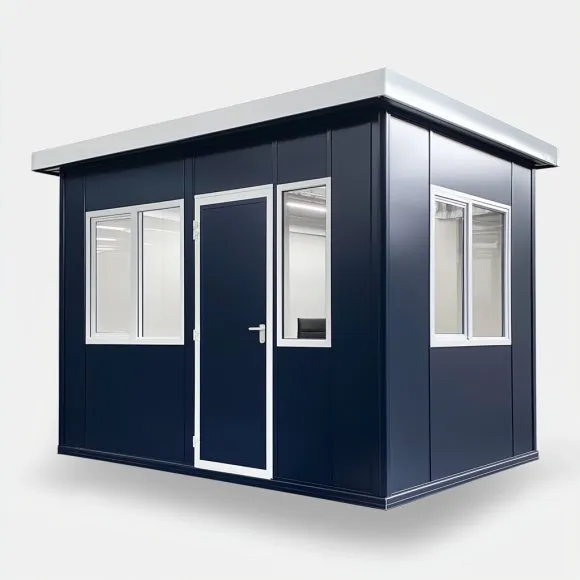
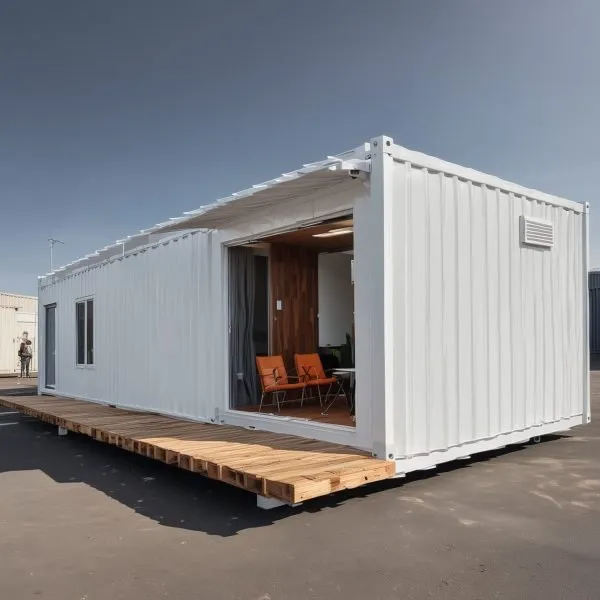
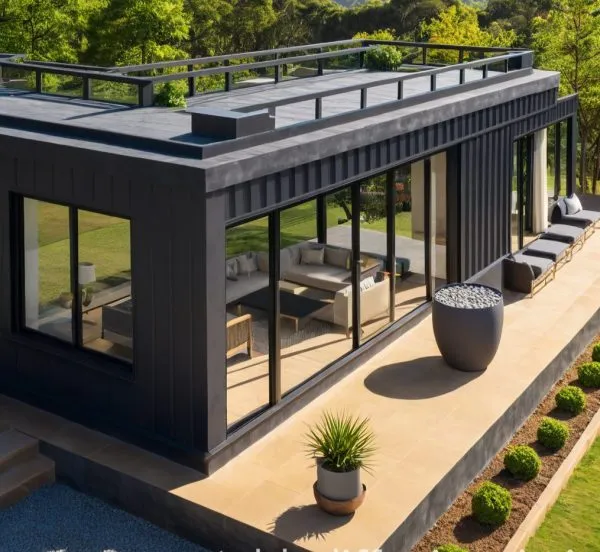
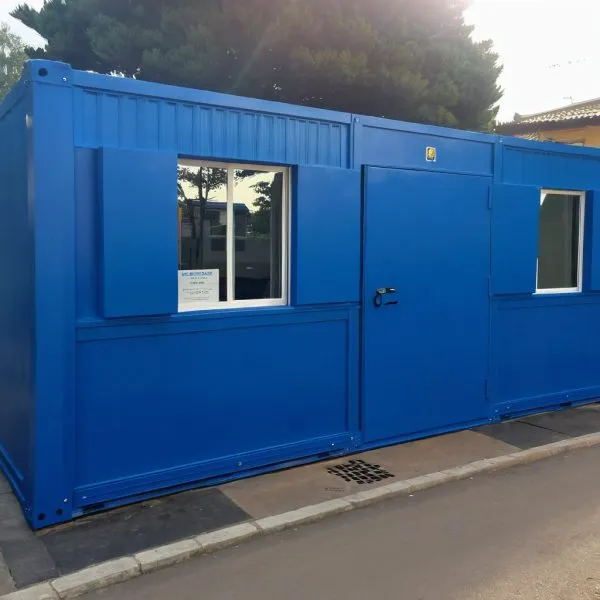
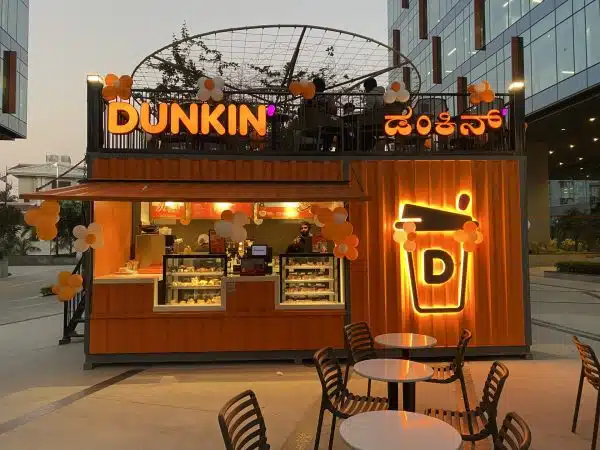
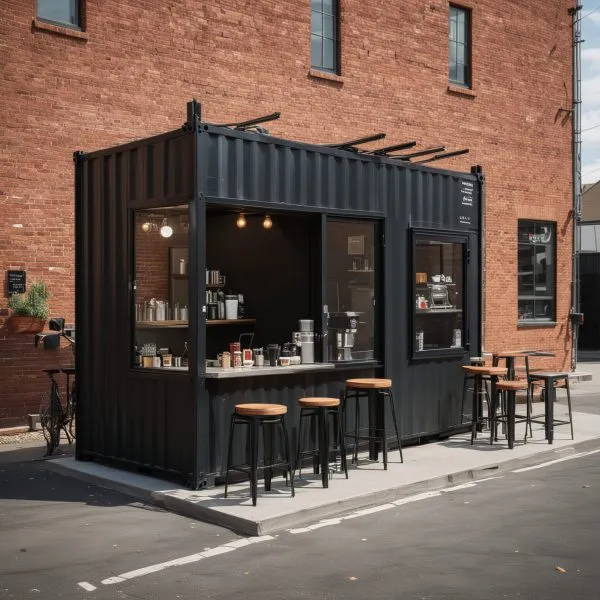
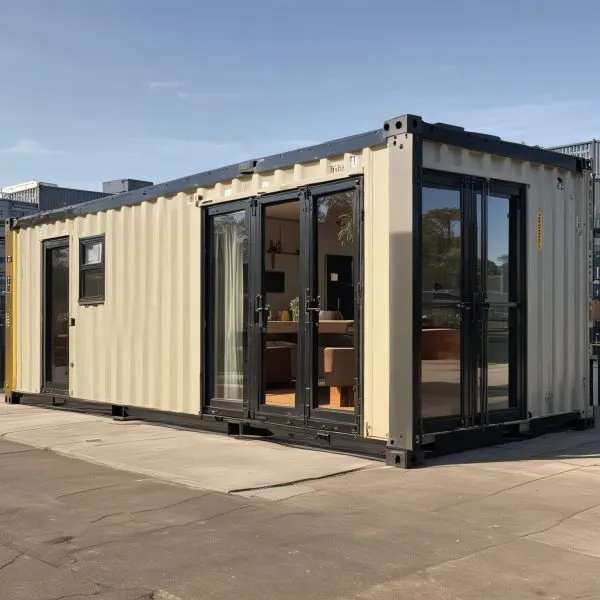
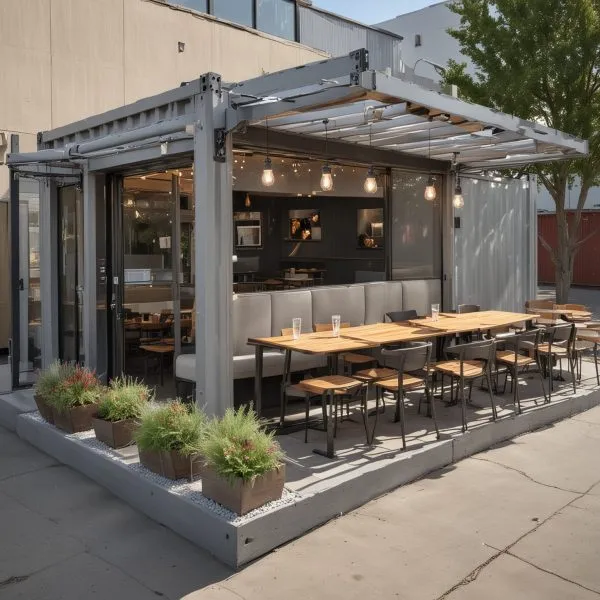
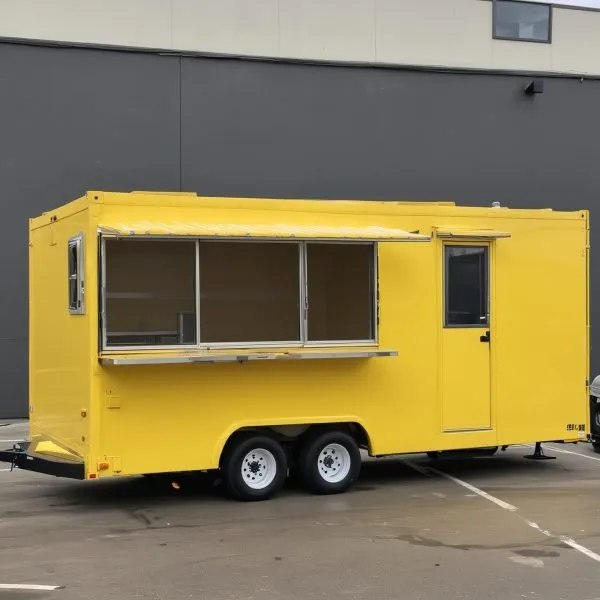
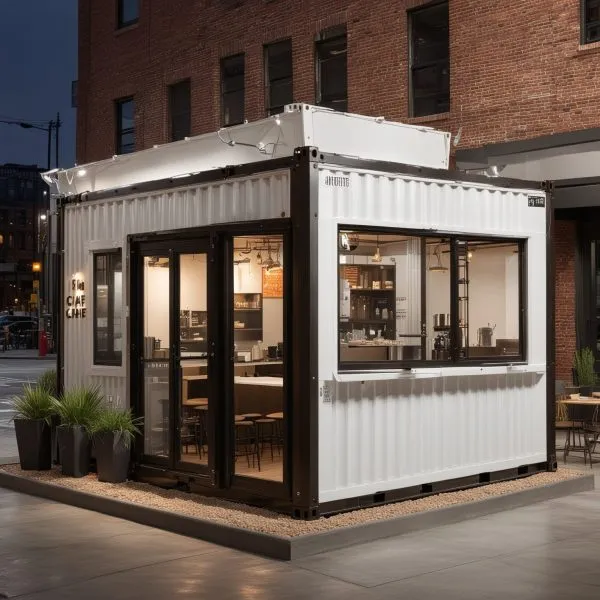
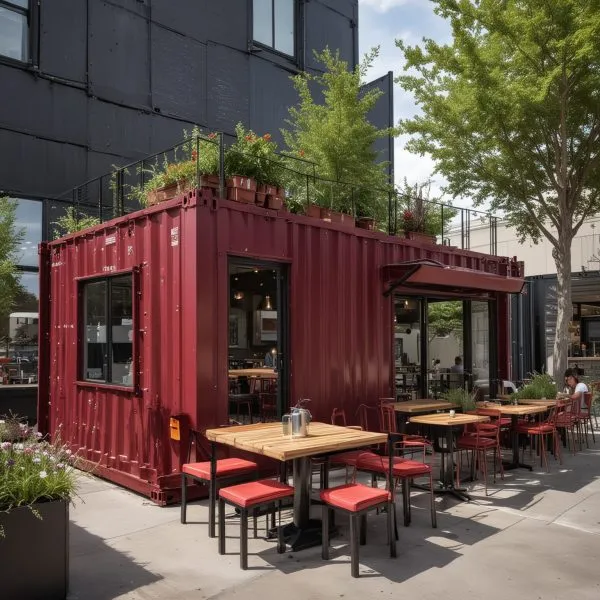
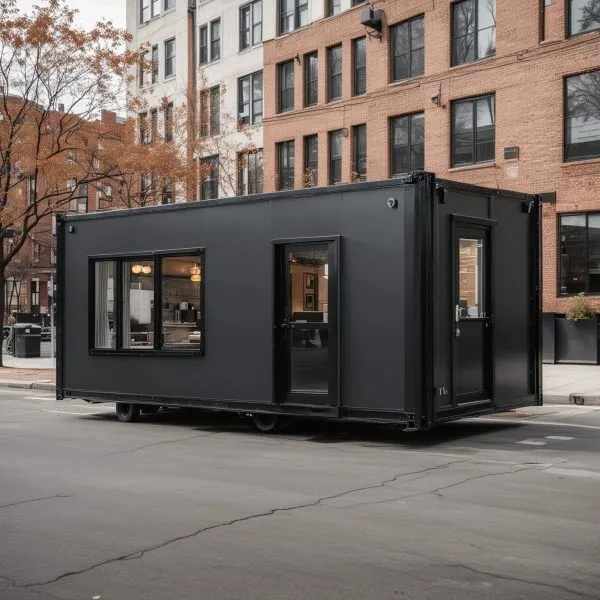
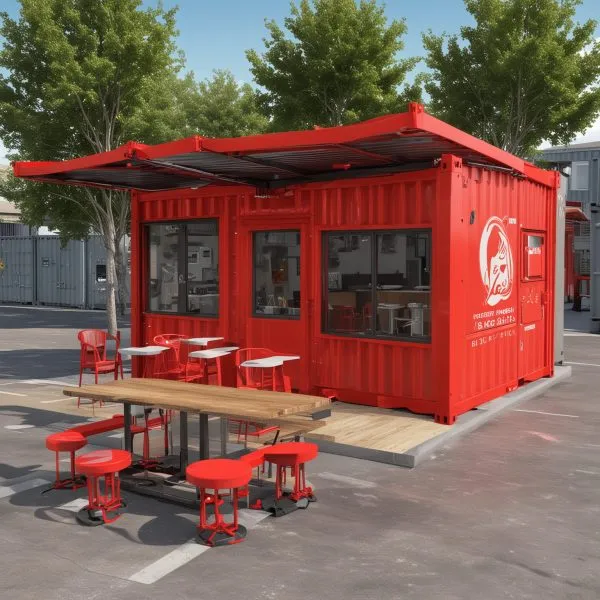
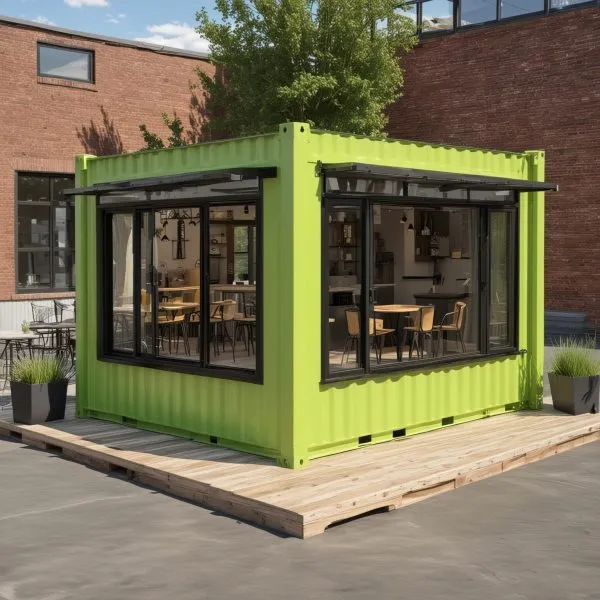
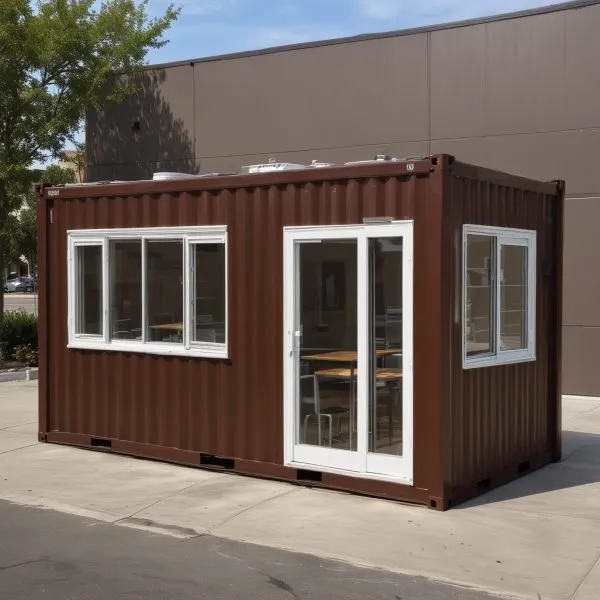
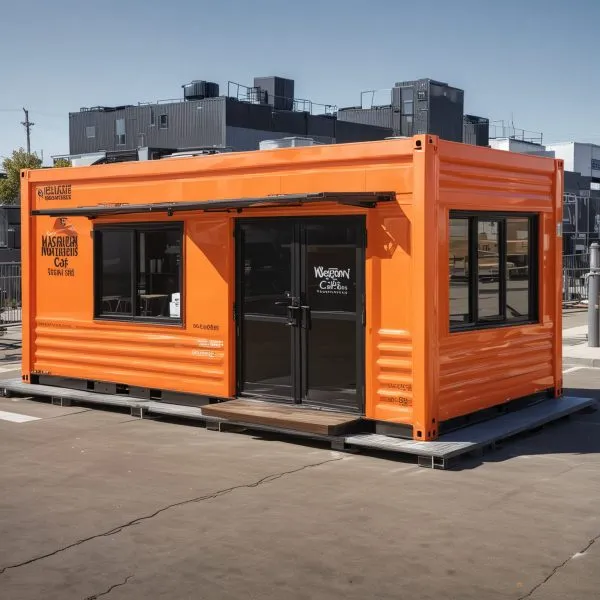

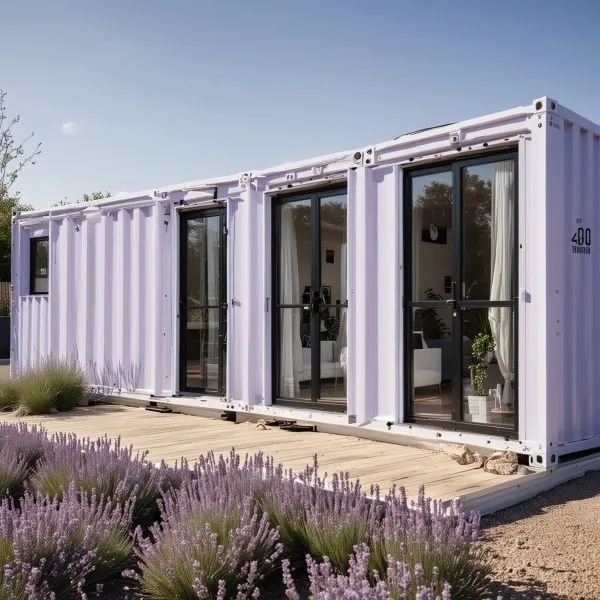
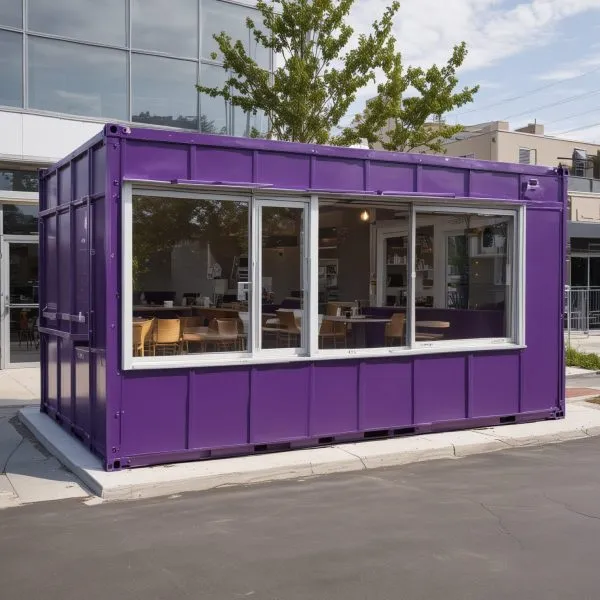
 n ideal choice for businesses with specific needs. One of the main advantages is the ability to tailor the design to fit your exact requirements. Whether you need additional office space, a conference room, or specialized facilities, modular buildings can be customized to meet these demands. This flexibility ensures that the building not only serves its purpose but also enhances productivity and efficiency.
n ideal choice for businesses with specific needs. One of the main advantages is the ability to tailor the design to fit your exact requirements. Whether you need additional office space, a conference room, or specialized facilities, modular buildings can be customized to meet these demands. This flexibility ensures that the building not only serves its purpose but also enhances productivity and efficiency.